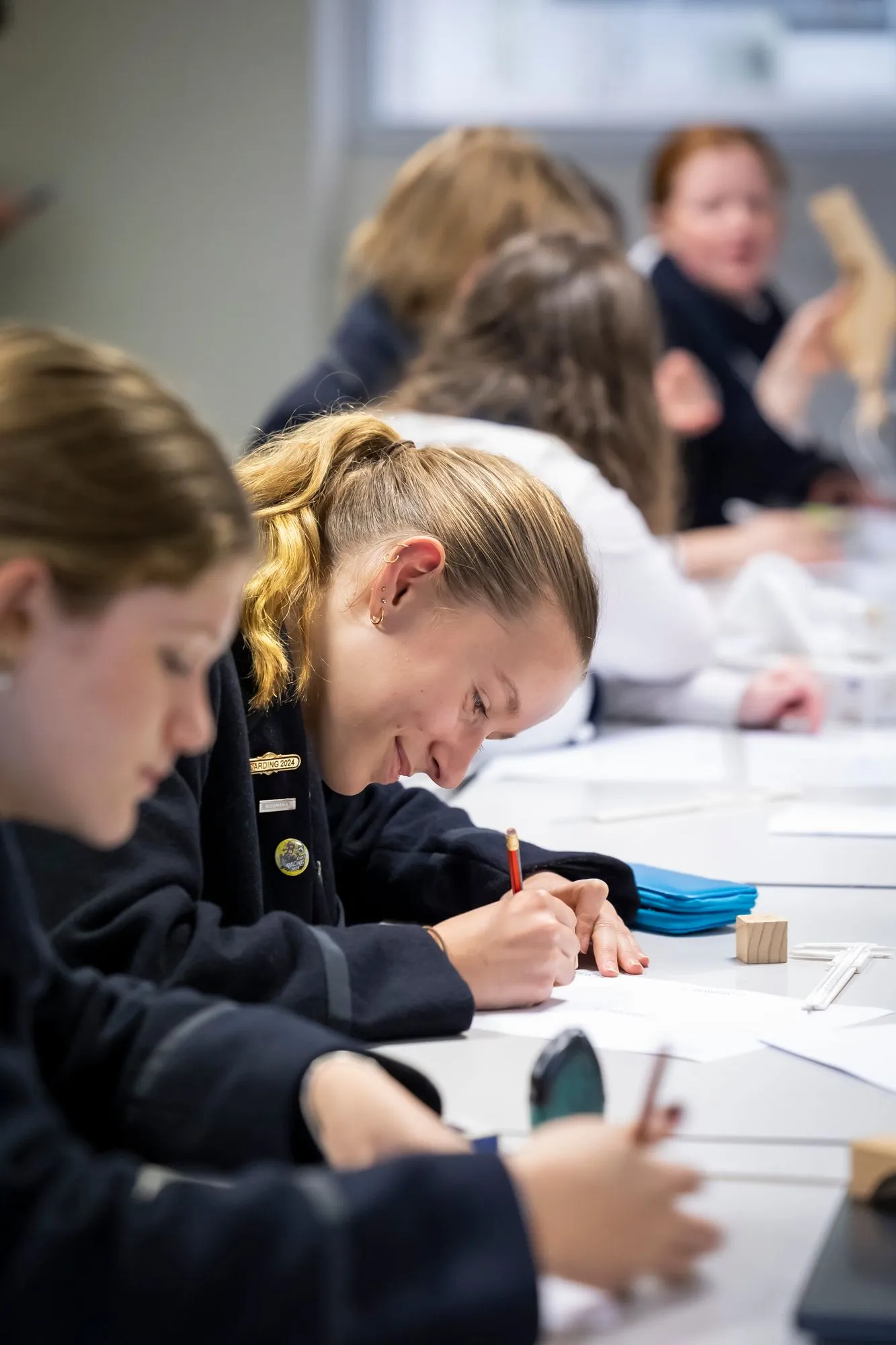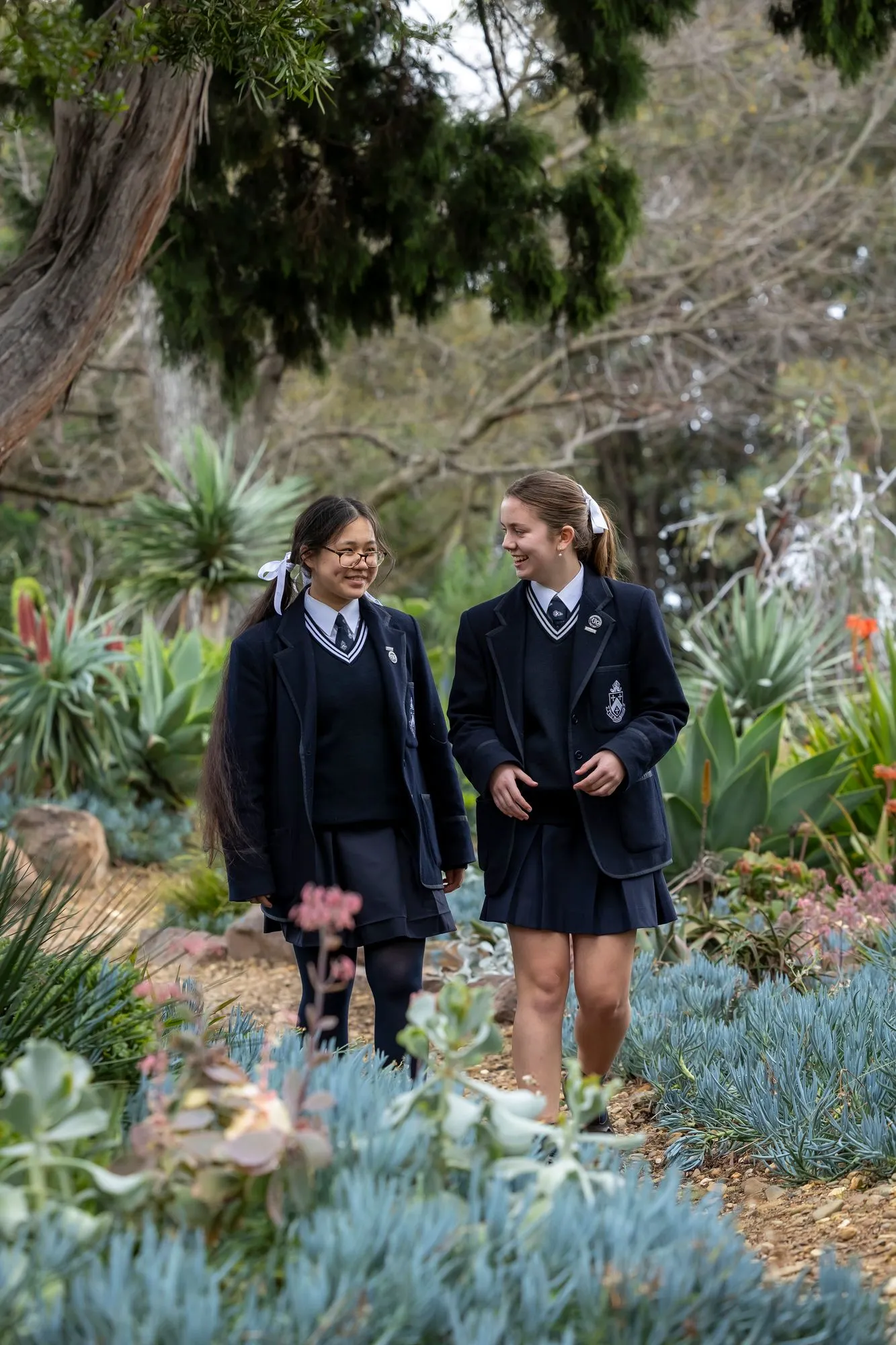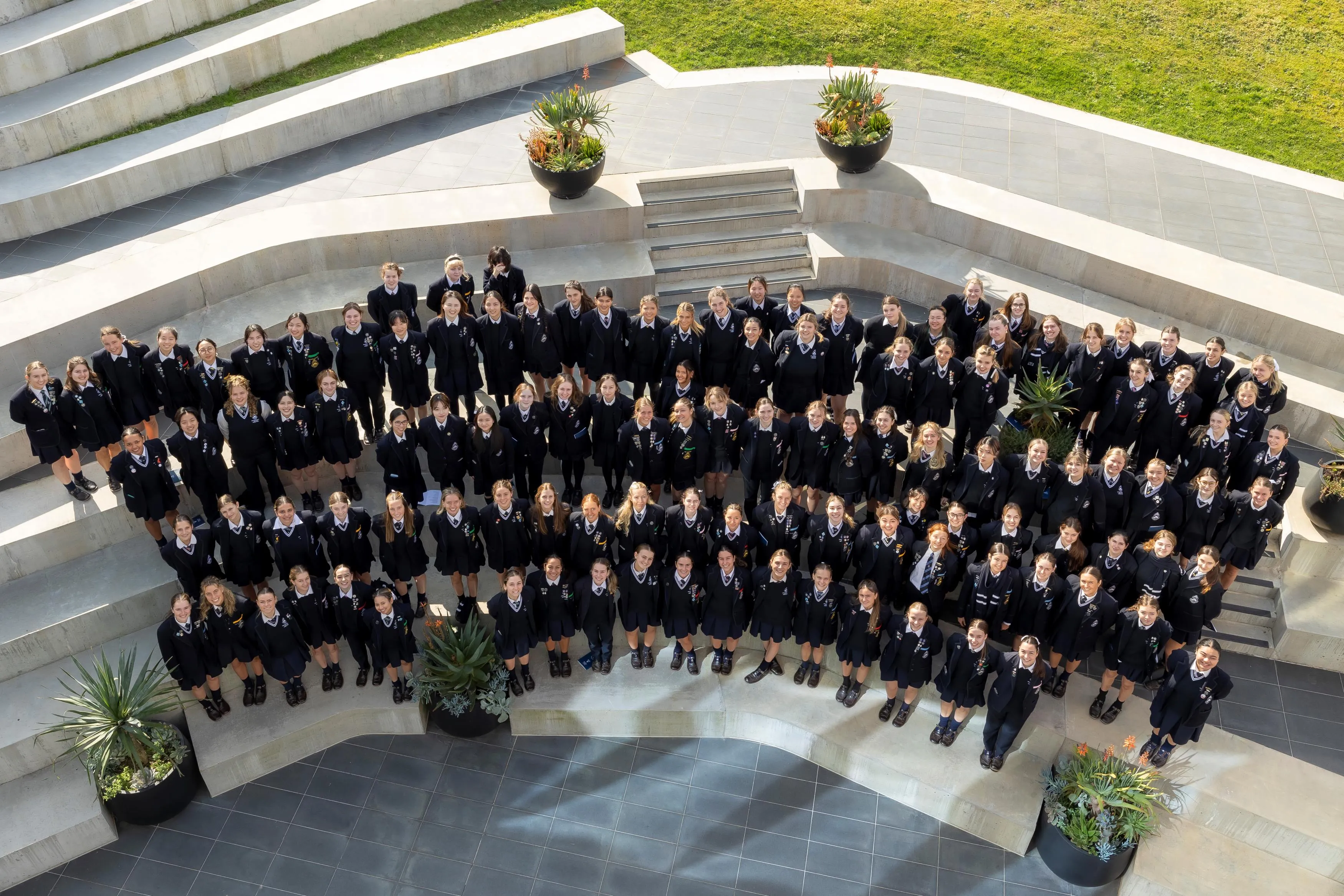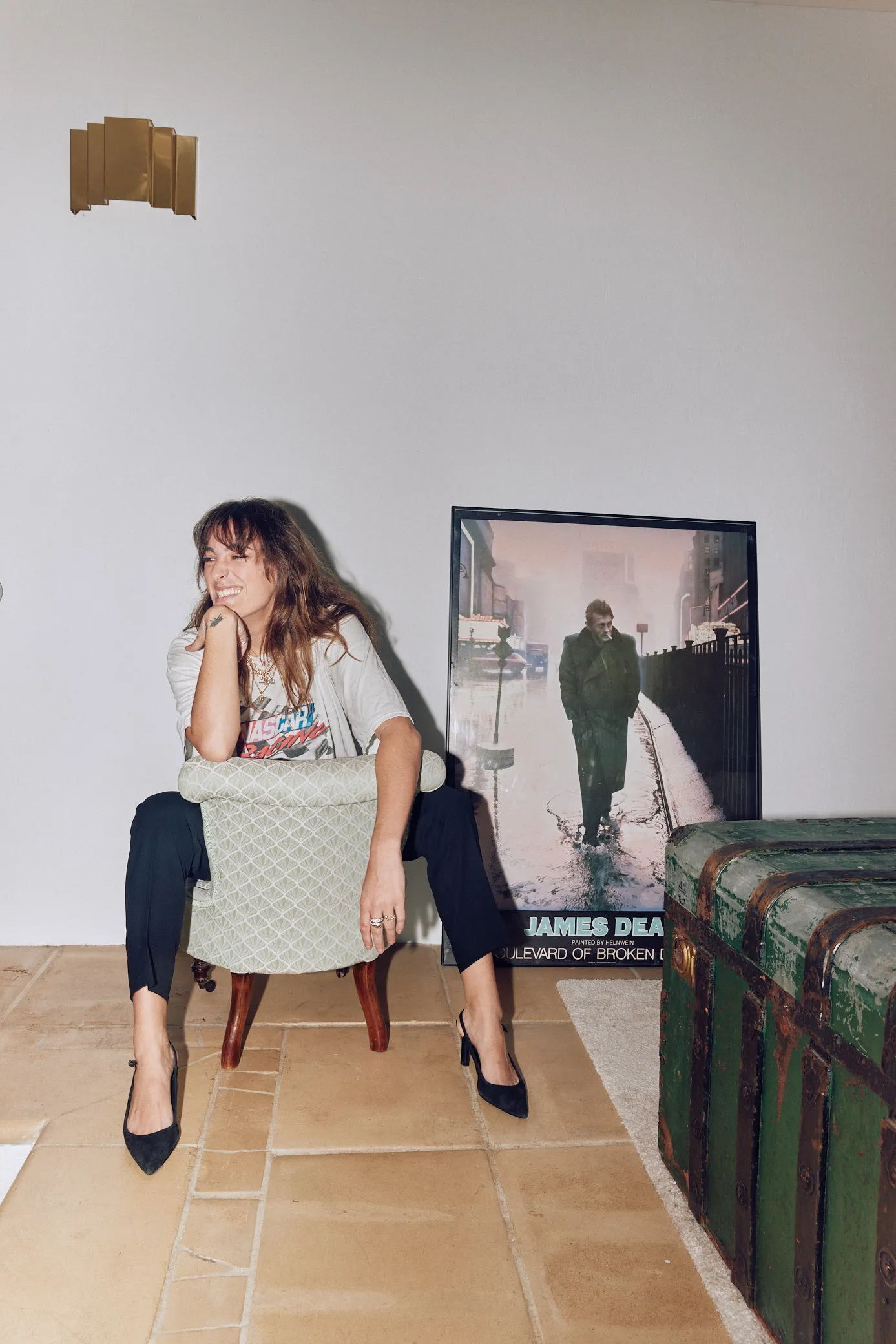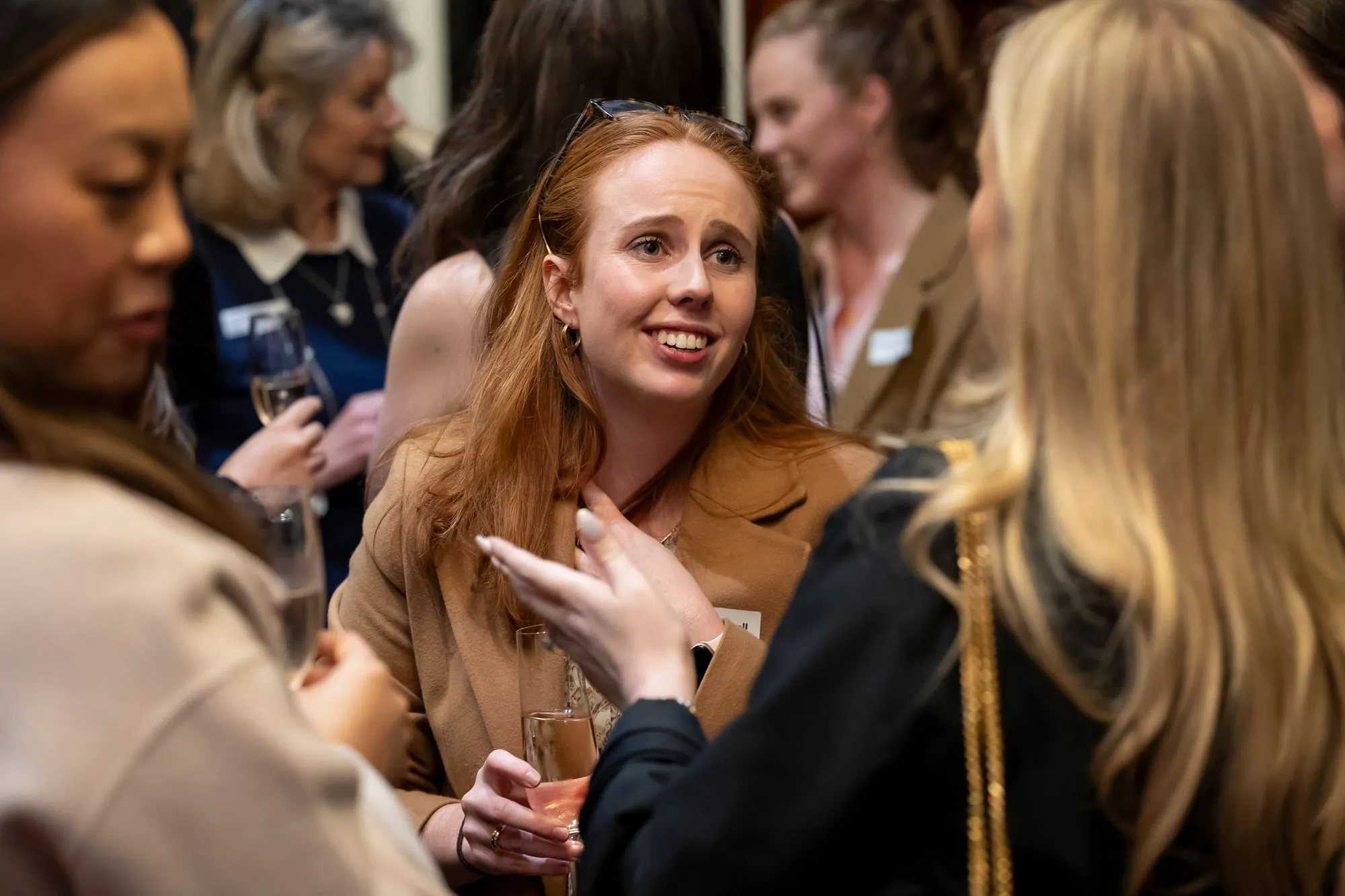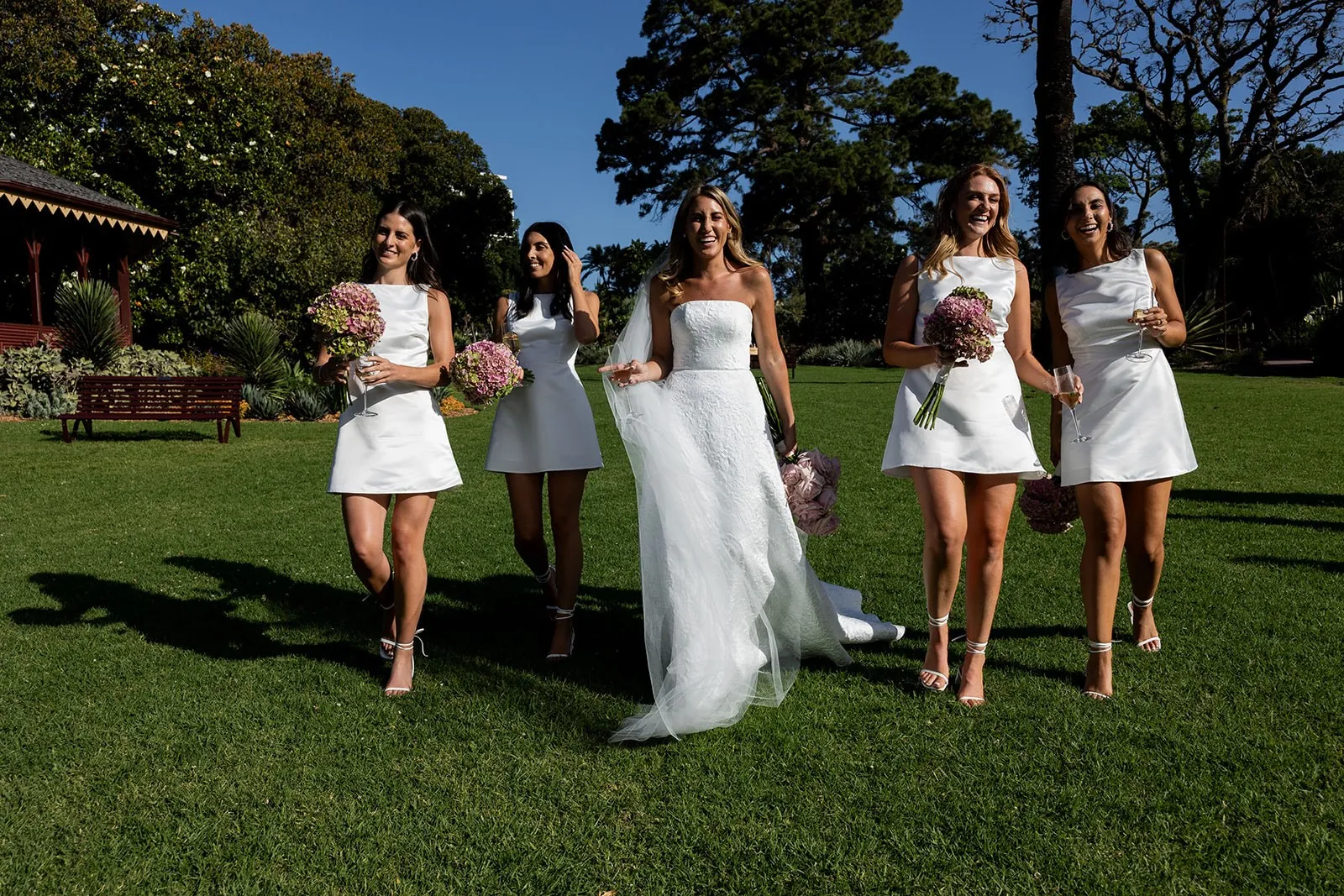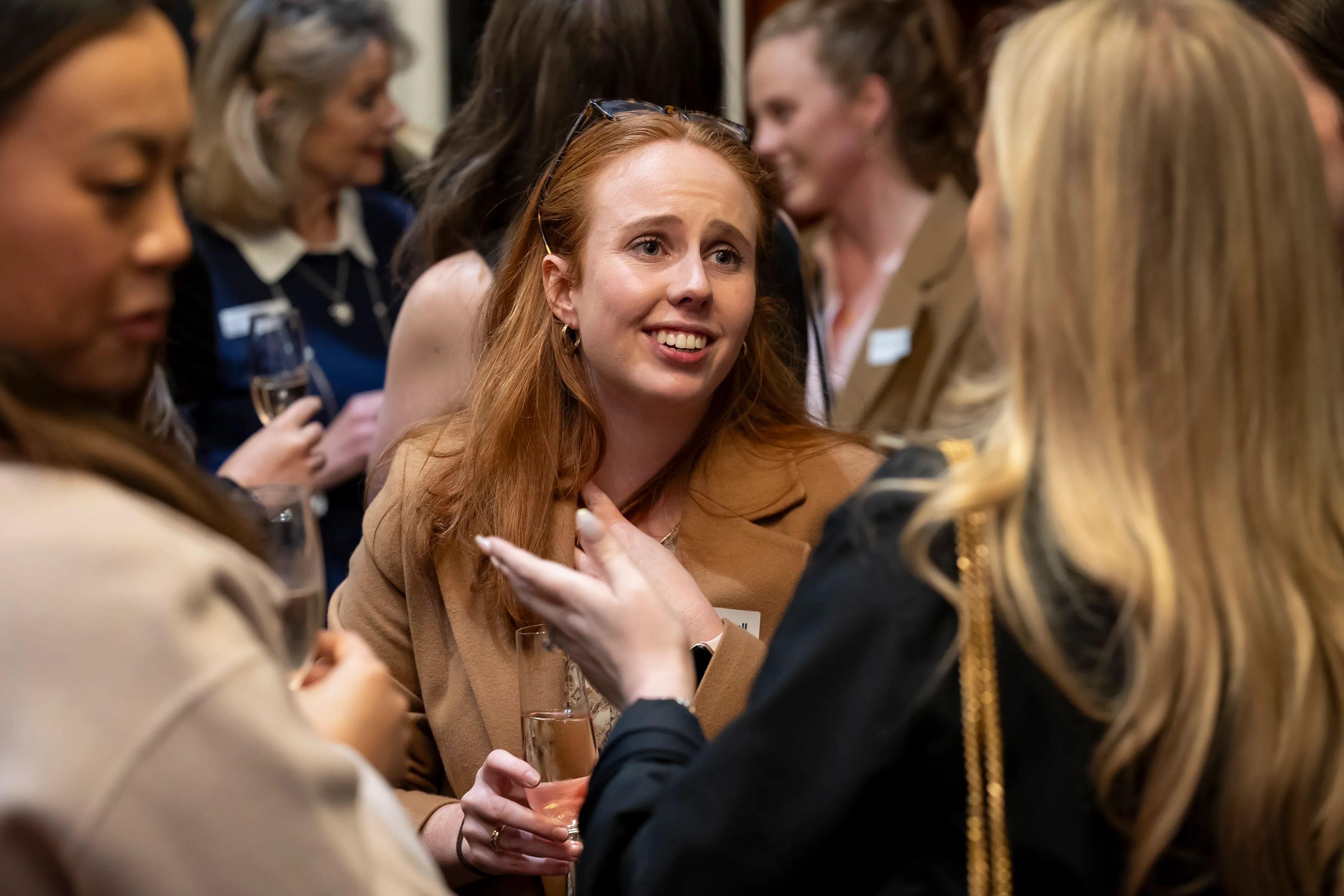



Staying Connected
Updates from the Old Grammarians Society Committee and a snapshot of the year's events so far.

A heartfelt thank you to our outgoing OGS Committee members. As we embrace the changing seasons and the transitions that accompany them, we bid farewell to some valued members of our Old Grammarians Society Committee.
Trudie Horsfall (1976), President
Libby Jones (Davey, 1964), Secretary
Marg McNaughton (Atkins, 1955), Gilman Jones Scholarship Trustee
Athena Kellis (Scotis, 1965) Events Co-Ordination
Tiffany Chiang (2021) General Committee
are all retiring this year. Their dedication and commitment have been fundamental to the OGS' success. Their time, effort, and hard work have been greatly appreciated.
On behalf of the entire community, we extend our gratitude and appreciation to each departing member of our OGS committee. We wish you well in your future endeavors.
*There is a special tribute to Trudie, written by Libby Jones in the 'Farewell and Thank you' article.
A heartfelt thank you to our outgoing OGS Committee members. As we embrace the changing seasons and the transitions that accompany them, we bid farewell to some valued members of our Old Grammarians Society Committee.
Trudie Horsfall (1976), President
Libby Jones (Davey, 1964), Secretary
Marg McNaughton (Atkins, 1955), Gilman Jones Scholarship Trustee
Athena Kellis (Scotis, 1965) Events Co-Ordination
Tiffany Chiang (2021) General Committee
are all retiring this year. Their dedication and commitment have been fundamental to the OGS' success. Their time, effort, and hard work have been greatly appreciated.
On behalf of the entire community, we extend our gratitude and appreciation to each departing member of our OGS committee. We wish you well in your future endeavors.
*There is a special tribute to Trudie, written by Libby Jones in the 'Farewell and Thank you' article.
A heartfelt thank you to our outgoing OGS Committee members. As we embrace the changing seasons and the transitions that accompany them, we bid farewell to some valued members of our Old Grammarians Society Committee.
Trudie Horsfall (1976), President
Libby Jones (Davey, 1964), Secretary
Marg McNaughton (Atkins, 1955), Gilman Jones Scholarship Trustee
Athena Kellis (Scotis, 1965) Events Co-Ordination
Tiffany Chiang (2021) General Committee
are all retiring this year. Their dedication and commitment have been fundamental to the OGS' success. Their time, effort, and hard work have been greatly appreciated.
On behalf of the entire community, we extend our gratitude and appreciation to each departing member of our OGS committee. We wish you well in your future endeavors.
*There is a special tribute to Trudie, written by Libby Jones in the 'Farewell and Thank you' article.

Recent Events
International Women's Day 2024
International Women's Day 2024 was celebrated on 8 March by our school community with a luncheon at the Lyceum Club. Again, the importance of continuous learning was reinforced by Prinicpal, Dr Toni Meath. This year's theme was #InvestInWomen and a number of our events touched on the importance of developing financial literacy skills in our young women and girls.
Our special guest speaker was Ginger Ridgeway (2006), the Emily Hensley Award recipient. Ginger has sought opportunities and work placements that have honed her knowledge and expertise in the areas of human rights the law and criminology. A University of Melbourne law graduate, she is passionate about Aboriginal affairs and global Indigenous rights and describes herself as a history nerd and a feminist. Ginger spoke about how affecting positive social change is the fire that powers her continued passion in the social justice landscape of Australia.
We thank the Old Grammarians, staff members and parents who joined us at the Lyceum Club for this event.
Old Grammarians Society AGM - Monday 13 May
With a successful AGM behind us, we warmly welcome Old Grammarian Committee Members who are stepping into new roles.
Rowena Mytton, President and Treasurer
Julie Faulkner, Vice President
Fiona Nicholson, Secretary
We wish them all well over the coming year.
The Old Grammarians Society is looking for someone to take on the role of Treasurer. Please contact us if you are interested in being on the Committee.
DJ Ross Oration - Tuesday 28 May
The DJ Ross Annual Oration was established in 2013 to celebrate 'DJ’s' vision and progressive philosophy that education was the key to a better world, especially for girls and women. Oration presenters are usually Old Grammarians who address a mixture of themes including education for girls and successful, differing career and personal pathways. This year the DJ Ross Oration featured a panel of two Old Grammarians who paid tribute to the achievements of an avid collector of Australian Contemporary art, including Indigenous works. Old Grammarian, Liz Laverty (Atkins, 1954) and her late husband Colin collected a world-class art collection spanning many decades.
Christine Collingwood (Flatman, 1963) and Alison Kelly (Fenton, 1967), both of whom have made significant contributions to the collection of Australian art, along with Liz, provided an insight to Liz’s life.
We thank Merial Clark (1978), Annita Robson (Brown, 1965) and Venetia Patchett (Streeton, 1965) for hosting this year's event at the Artemis Centre, and everyone who came along.
Recent Events
International Women's Day 2024
International Women's Day 2024 was celebrated on 8 March by our school community with a luncheon at the Lyceum Club. Again, the importance of continuous learning was reinforced by Prinicpal, Dr Toni Meath. This year's theme was #InvestInWomen and a number of our events touched on the importance of developing financial literacy skills in our young women and girls.
Our special guest speaker was Ginger Ridgeway (2006), the Emily Hensley Award recipient. Ginger has sought opportunities and work placements that have honed her knowledge and expertise in the areas of human rights the law and criminology. A University of Melbourne law graduate, she is passionate about Aboriginal affairs and global Indigenous rights and describes herself as a history nerd and a feminist. Ginger spoke about how affecting positive social change is the fire that powers her continued passion in the social justice landscape of Australia.
We thank the Old Grammarians, staff members and parents who joined us at the Lyceum Club for this event.
Old Grammarians Society AGM - Monday 13 May
With a successful AGM behind us, we warmly welcome Old Grammarian Committee Members who are stepping into new roles.
Rowena Mytton, President and Treasurer
Julie Faulkner, Vice President
Fiona Nicholson, Secretary
We wish them all well over the coming year.
The Old Grammarians Society is looking for someone to take on the role of Treasurer. Please contact us if you are interested in being on the Committee.
DJ Ross Oration - Tuesday 28 May
The DJ Ross Annual Oration was established in 2013 to celebrate 'DJ’s' vision and progressive philosophy that education was the key to a better world, especially for girls and women. Oration presenters are usually Old Grammarians who address a mixture of themes including education for girls and successful, differing career and personal pathways. This year the DJ Ross Oration featured a panel of two Old Grammarians who paid tribute to the achievements of an avid collector of Australian Contemporary art, including Indigenous works. Old Grammarian, Liz Laverty (Atkins, 1954) and her late husband Colin collected a world-class art collection spanning many decades.
Christine Collingwood (Flatman, 1963) and Alison Kelly (Fenton, 1967), both of whom have made significant contributions to the collection of Australian art, along with Liz, provided an insight to Liz’s life.
We thank Merial Clark (1978), Annita Robson (Brown, 1965) and Venetia Patchett (Streeton, 1965) for hosting this year's event at the Artemis Centre, and everyone who came along.
Recent Events
International Women's Day 2024
International Women's Day 2024 was celebrated on 8 March by our school community with a luncheon at the Lyceum Club. Again, the importance of continuous learning was reinforced by Prinicpal, Dr Toni Meath. This year's theme was #InvestInWomen and a number of our events touched on the importance of developing financial literacy skills in our young women and girls.
Our special guest speaker was Ginger Ridgeway (2006), the Emily Hensley Award recipient. Ginger has sought opportunities and work placements that have honed her knowledge and expertise in the areas of human rights the law and criminology. A University of Melbourne law graduate, she is passionate about Aboriginal affairs and global Indigenous rights and describes herself as a history nerd and a feminist. Ginger spoke about how affecting positive social change is the fire that powers her continued passion in the social justice landscape of Australia.
We thank the Old Grammarians, staff members and parents who joined us at the Lyceum Club for this event.
Old Grammarians Society AGM - Monday 13 May
With a successful AGM behind us, we warmly welcome Old Grammarian Committee Members who are stepping into new roles.
Rowena Mytton, President and Treasurer
Julie Faulkner, Vice President
Fiona Nicholson, Secretary
We wish them all well over the coming year.
The Old Grammarians Society is looking for someone to take on the role of Treasurer. Please contact us if you are interested in being on the Committee.
DJ Ross Oration - Tuesday 28 May
The DJ Ross Annual Oration was established in 2013 to celebrate 'DJ’s' vision and progressive philosophy that education was the key to a better world, especially for girls and women. Oration presenters are usually Old Grammarians who address a mixture of themes including education for girls and successful, differing career and personal pathways. This year the DJ Ross Oration featured a panel of two Old Grammarians who paid tribute to the achievements of an avid collector of Australian Contemporary art, including Indigenous works. Old Grammarian, Liz Laverty (Atkins, 1954) and her late husband Colin collected a world-class art collection spanning many decades.
Christine Collingwood (Flatman, 1963) and Alison Kelly (Fenton, 1967), both of whom have made significant contributions to the collection of Australian art, along with Liz, provided an insight to Liz’s life.
We thank Merial Clark (1978), Annita Robson (Brown, 1965) and Venetia Patchett (Streeton, 1965) for hosting this year's event at the Artemis Centre, and everyone who came along.
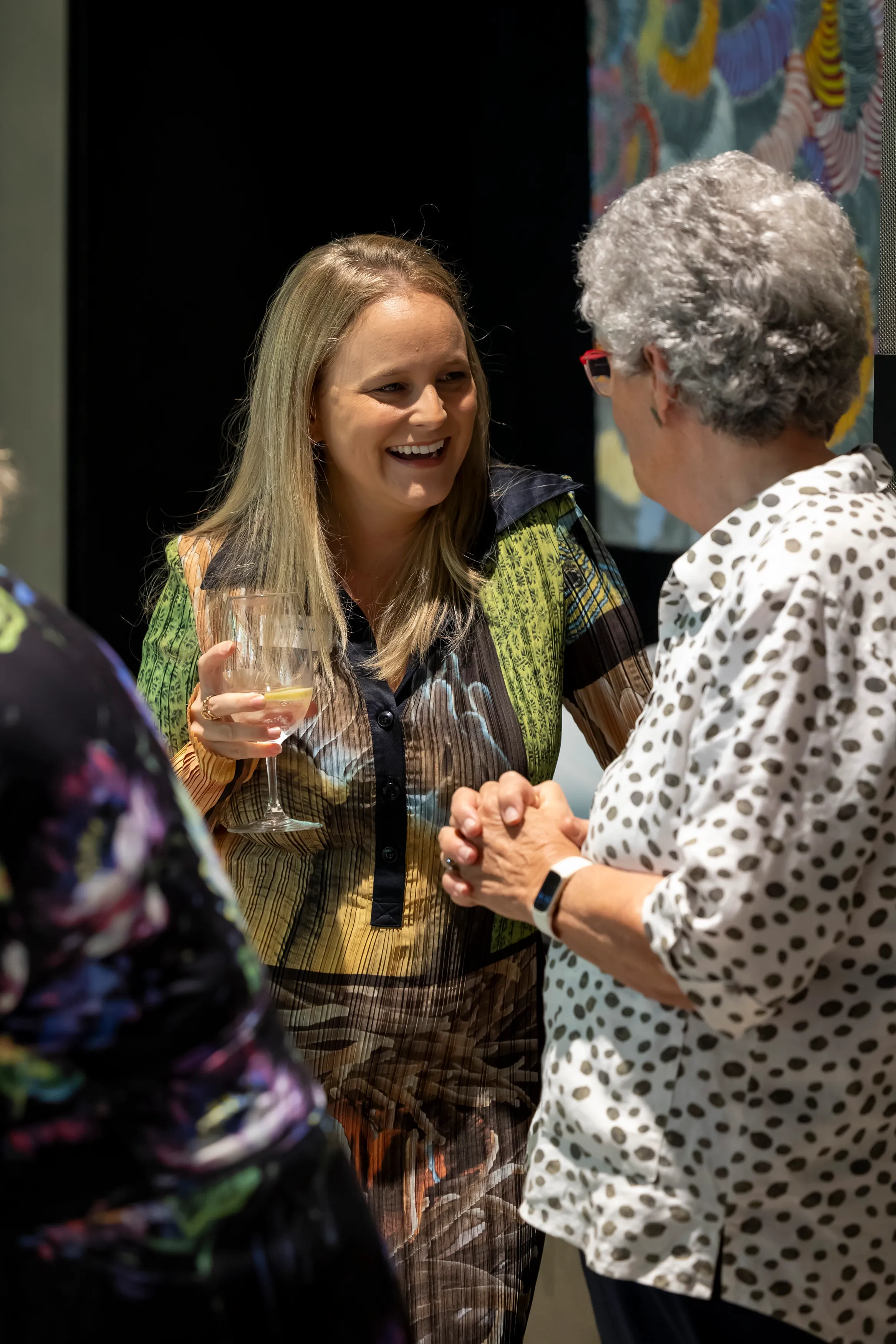

IWD Guest speaker Ginger chats with Pip O'Connor, March 2024.



IWD Guest speaker Ginger chats with Pip O'Connor, March 2024.
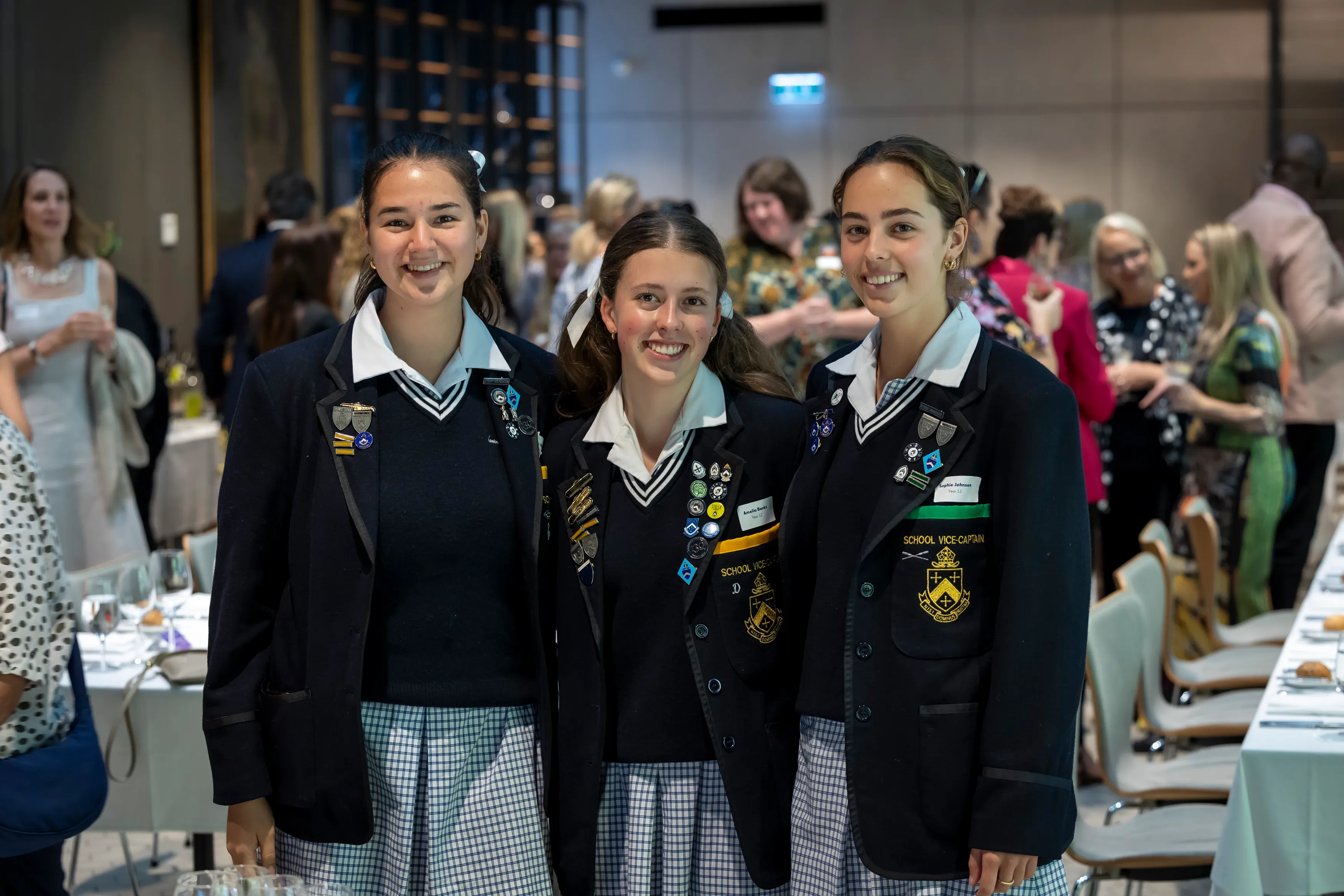

2024 School Captains Emily, Amelia and Sophie at the IWD Luncheon, March 2024.
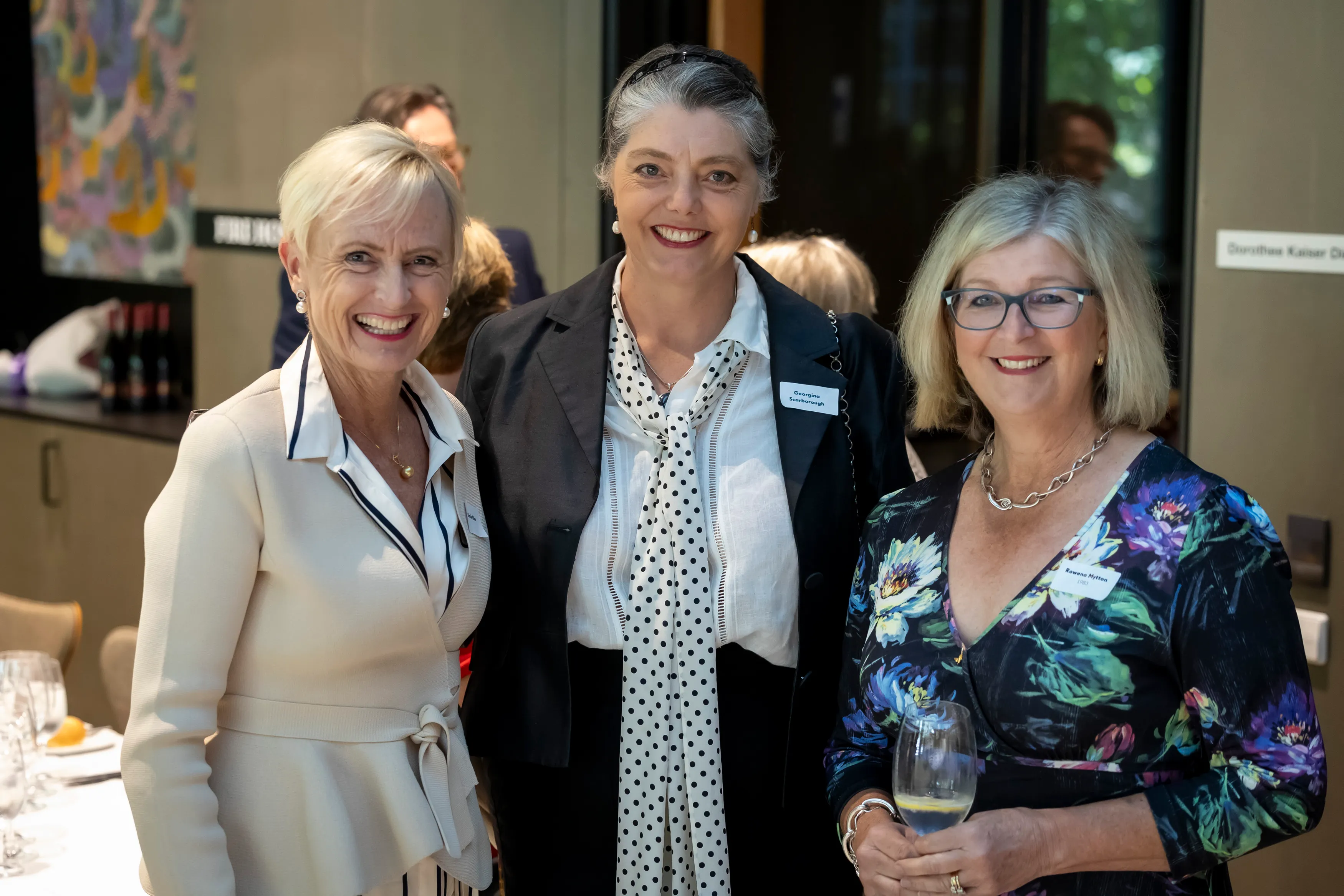

Dr Katie Allen (1983), Georgina Scarborough (1983) and Rowena Mytton (1983) at the IWD Luncheon, March 2024.

60 Year Reunion
The 60 Year Reunion cocktail party was held at Glenhope in early May. Jenny Milne wrote and delivered a beautiful, nostalgic and comedic address for her former classmates which brought a smile to each face in the room! You can read Jenny's reflections below.
70 Year Reunion
A special luncheon was held at Glenhope in May for Old Grammarians from the Class of 1954 and earlier to come together. Principal Dr Toni Meath joined the special guests for lunch. We thank Pip O'Connor for her work putting together a delightful slideshow of some wonderful images from times past.
10 Year Reunion
The 10 Year Reunion for Grammarians from the Class of 2014 was held at Glenhope on Friday 24 May 2024. Around 40 Old Grammarians were joined by past and current staff including Michael Ware, Lynn Broadway, Allison Bray and Amanda Ford. Vice Captains from 2014 Bella Clough and Caroline Bett spoke briefly to the group about their time at School. All were intrigued to explore the new community hub at Glenhope and enjoyed reconnecting. Thank you for joining us!
We were also very glad to have caterers Smith & Co Foods for this event. Smith & Co Foods is owned and run by Old Grammarian Camilla Loughnan (Aurel-Smith, 2006) and wait staff for the evening were young OGs Bonnie Prendergast and Millie Bennetts (both Class of 2020), who enjoyed catching up with some older Old Grammarians!
60 Year Reunion
The 60 Year Reunion cocktail party was held at Glenhope in early May. Jenny Milne wrote and delivered a beautiful, nostalgic and comedic address for her former classmates which brought a smile to each face in the room! You can read Jenny's reflections below.
70 Year Reunion
A special luncheon was held at Glenhope in May for Old Grammarians from the Class of 1954 and earlier to come together. Principal Dr Toni Meath joined the special guests for lunch. We thank Pip O'Connor for her work putting together a delightful slideshow of some wonderful images from times past.
10 Year Reunion
The 10 Year Reunion for Grammarians from the Class of 2014 was held at Glenhope on Friday 24 May 2024. Around 40 Old Grammarians were joined by past and current staff including Michael Ware, Lynn Broadway, Allison Bray and Amanda Ford. Vice Captains from 2014 Bella Clough and Caroline Bett spoke briefly to the group about their time at School. All were intrigued to explore the new community hub at Glenhope and enjoyed reconnecting. Thank you for joining us!
We were also very glad to have caterers Smith & Co Foods for this event. Smith & Co Foods is owned and run by Old Grammarian Camilla Loughnan (Aurel-Smith, 2006) and wait staff for the evening were young OGs Bonnie Prendergast and Millie Bennetts (both Class of 2020), who enjoyed catching up with some older Old Grammarians!
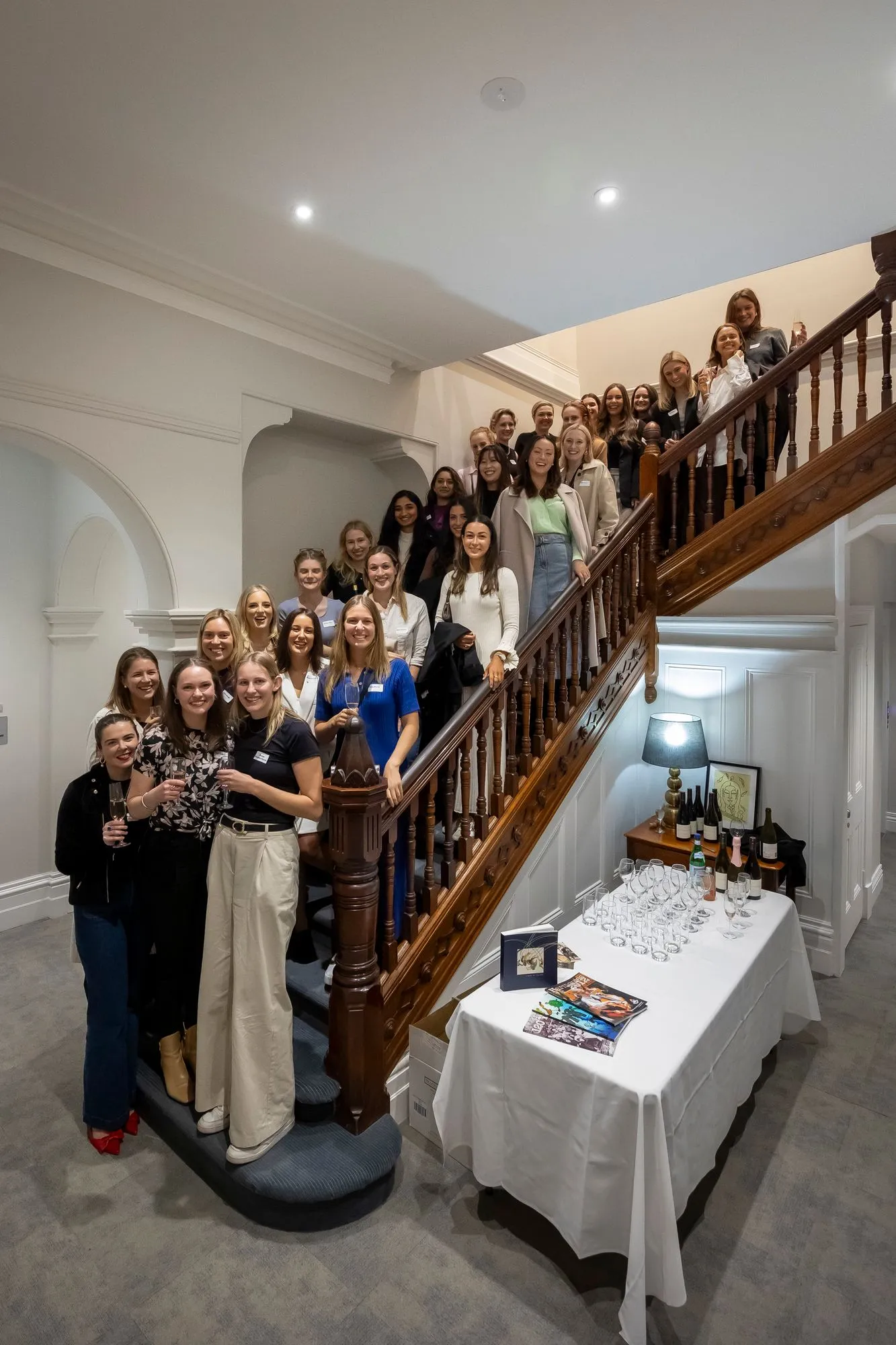

Old Grammarians at the 10 Year Reunion at Glenhope, May 2024



Old Grammarians at the 10 Year Reunion at Glenhope, May 2024
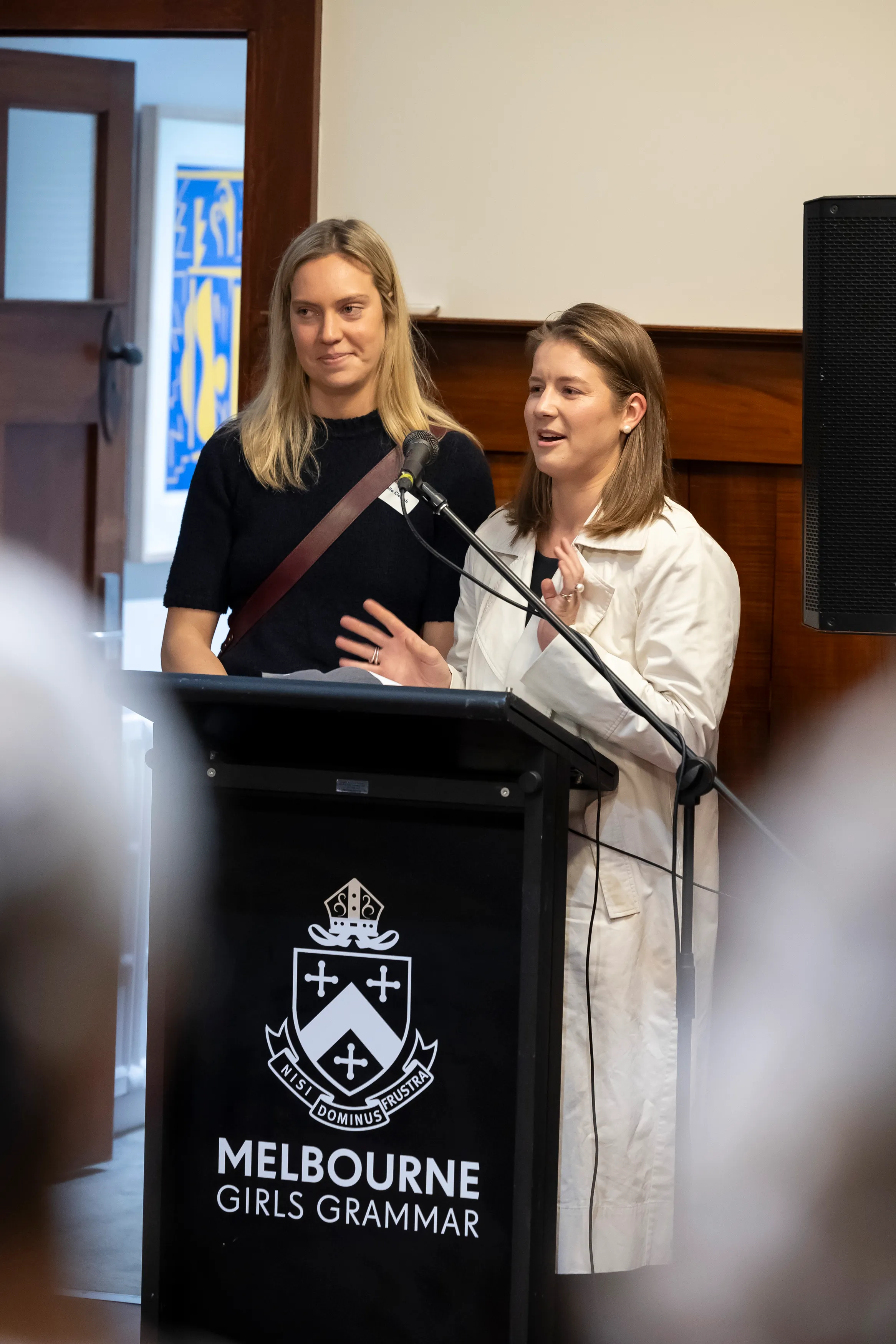

School Vice Captains Bella Clough and Caroline Bett make their Class of 2014 classmates feel welcome at the Reunion, May 2024.


Old Grammarians at the 10 Year Reunion at Glenhope, May 2024


School Vice Captains Bella Clough and Caroline Bett make their Class of 2014 classmates feel welcome at the Reunion, May 2024.

Reunions to Come
Join your MGGS classmates at Celebratory reunion cocktail party in 2024.
20 Year Reunion (Class of 2004) – Friday 14 June 2024
30 Year Reunion (Class of 1994) – Friday 19 July 2024
40 Year Reunion (Class of 1984) – Friday 26 July 2024
50 Year Reunion (Class of 1974) – Friday 9 August 2024
1 Year Reunion (Class of 2023) – Friday 22 November 2024
To ensure you don't miss an invitation, update your contact details with the Community Office. Click here to update your details.
Reunions to Come
Join your MGGS classmates at Celebratory reunion cocktail party in 2024.
20 Year Reunion (Class of 2004) – Friday 14 June 2024
30 Year Reunion (Class of 1994) – Friday 19 July 2024
40 Year Reunion (Class of 1984) – Friday 26 July 2024
50 Year Reunion (Class of 1974) – Friday 9 August 2024
1 Year Reunion (Class of 2023) – Friday 22 November 2024
To ensure you don't miss an invitation, update your contact details with the Community Office. Click here to update your details.
Reunions to Come
Join your MGGS classmates at Celebratory reunion cocktail party in 2024.
20 Year Reunion (Class of 2004) – Friday 14 June 2024
30 Year Reunion (Class of 1994) – Friday 19 July 2024
40 Year Reunion (Class of 1984) – Friday 26 July 2024
50 Year Reunion (Class of 1974) – Friday 9 August 2024
1 Year Reunion (Class of 2023) – Friday 22 November 2024
To ensure you don't miss an invitation, update your contact details with the Community Office. Click here to update your details.

60 Year Reunion
Written and delivered by Jenny Milne (Hughes, 1964) at the 60 Year Reunion at Glenhope on 3 May 2024.
60 Year Reunion
Written and delivered by Jenny Milne (Hughes, 1964) at the 60 Year Reunion at Glenhope on 3 May 2024.
60 Year Reunion
Written and delivered by Jenny Milne (Hughes, 1964) at the 60 Year Reunion at Glenhope on 3 May 2024.
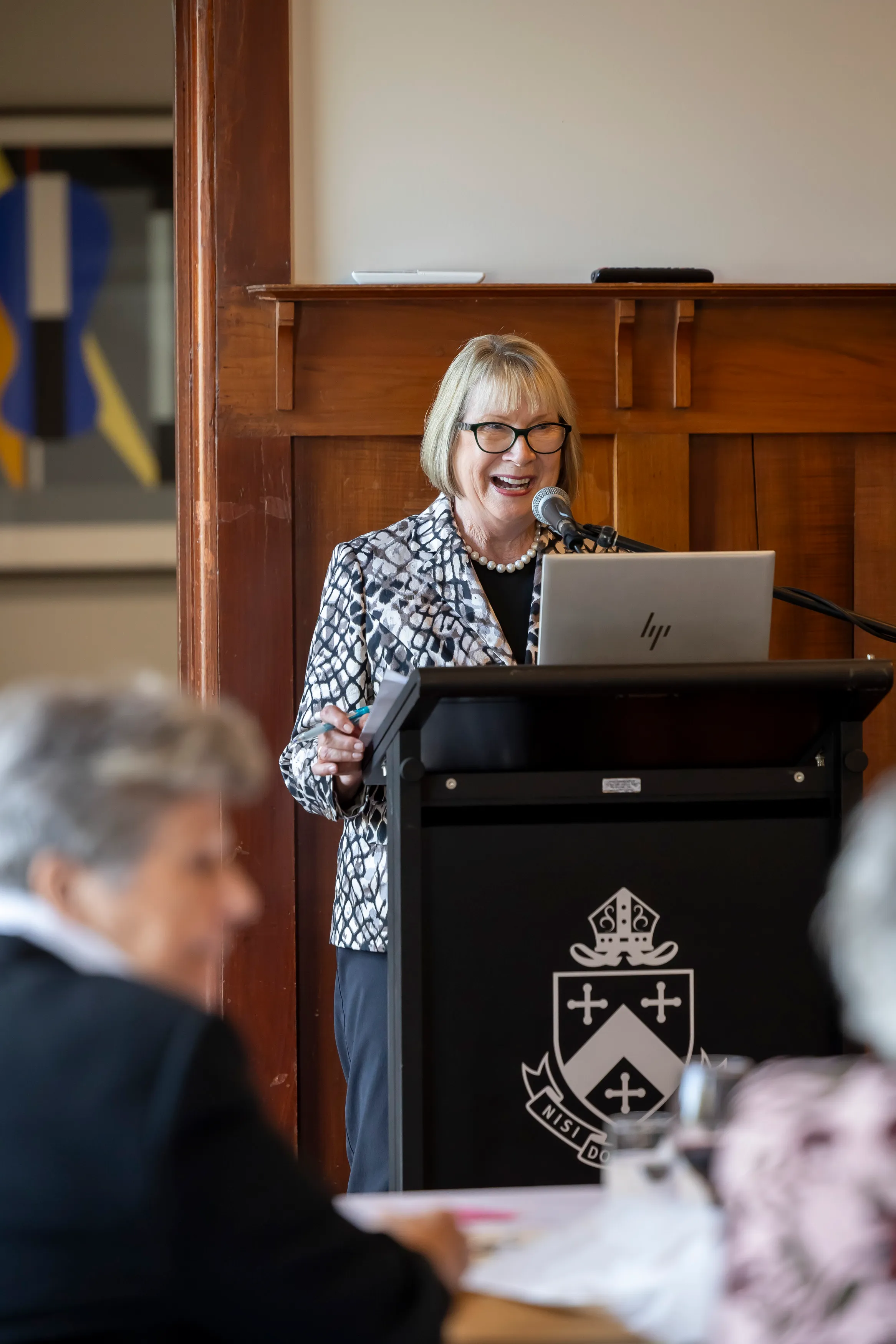




Jenny Milne (Hughes, 1964) delivers her speech at the 60 Year Reunion, May 2024.


Jenny Milne (Hughes, 1964) delivers her speech at the 60 Year Reunion, May 2024.

It is a great pleasure to be able to share some rather random reminisces of our school days at this, our 60 Year Reunion.
Firstly, I pay my respects to the traditional owners of the land where we are meeting today.
I would like to start by thanking School Principal Toni Meath for being present at our lunch and so welcoming to us all. This event has been organised thanks to the skills of Clare and Danica, and also Pip, and I know we are all grateful to them for acknowledging this landmark year for the old girls of 1964. We thank Pip especially for the wonderful tour of the school this morning, on this perfect Autumn day.
My name is Jenny Milne, I was Jenny Hughes at school. Not a super-star at anything except chemistry. I was shy, quite nerdish, followed the rules and did not rock the boat. I could probably be describing many of our year group. I was a day girl, so I am sure the boarders here today would have lots more to add to their side of the story.
There are about 25 of us gathered here today. Sadly, over the years we have lost a few of our special friends, most recently Jill Dunn who died just before Easter, and Jenny Bridgland, Lyn Thompson and Marilyn Woodruff too. They have passed since we last met. We remember them all fondly and miss them so much.
Although we all finished our school days in 1964, it is our years at school leading up to that date on which I shall briefly reflect. I am not trying to cover the school or world history, just some of our memories as they relate to some events and our school days.
Some of us started here in what was then Ross Hall, in Prep, in 1953. I remember my first day, meeting other new girls, and some who had been at the School’s kinder, they already knew the ropes and had established friends. But some of the girls mingling in the hallway on that day were to become my lifelong friends and we still meet regularly for what we call our ‘five year old’ lunch.
In the early 1950s, Melbourne was still a very British city, and we felt, and were seen as, a remote part of the world both geographically and culturally. Looking back, this was so soon after World War II, and I know that a number of our teachers had come to Australia from post-war Britain and Europe. In early 1954, the Queen visited Melbourne, cementing our place in the Commonwealth, and we, little Grade 2 girls, marched down Anderson Street in an orderly two-across, and lined up in Alexandra Avenue enthusiastically waving our flags.
I was in the Grade 2 class taught by Miss Chomley and I think our classroom was located in an annex between the Hall and the hockey field. Probably built from fibro cement. There was a mural of St Francis of Assisi painted on the outside of the back wall which we all admired at playtime. I don’t know if there is any photographic record of that mural in archives. I wish I knew more about it and who was the artist.
1956 was a tumultuous year in the world, but it was an exciting one for us. We were in Grade 4, in Morris Hall and Miss Thomas was my teacher. We recited times tables and had lots of spelling bees. I remember being astonished when Diana Daish spelt r-e-s-p-e-c-t-a-b-l-e without hesitation. I was sure I could not have been so adept! This was the year of the Olympic Games in Melbourne, we learned about other countries, listened to other national anthems and knew all those flags and the significance of the Olympic rings and their colours. We had autograph books and tried so hard to fill up the pages. We went on an excursion to the MCG which was being converted into an athletics track and somehow gained an inkling into some international tensions that spilled over into sport. Just preceding the Games there was the Suez Crisis, and the Hungarian Uprising, so the Games were boycotted by Egypt and some other countries, and a fight broke out in the water polo match between Hungary and Russia. All this chaos elsewhere was the reason we packed little boxes in class with soap, face washers and other items for those in need. There were so many people in need, displaced from homes and countries, as there are today.
Television was launched into Australia in time for the Olympics, but apart from Rin Tin Tin and the Mickey Mouse Club, I don’t remember discussing it at school in those days. It became increasingly important though as we learned about events in the outside world.
All of us who were in Morris Hall, which was then a red brick building facing Anderson Street, recall the daily milk delivery. Those little bottles in crates waiting in the sun for us to come out at recess. The cream had risen to the top, and we were made to drink them as we stood in that dreary asphalt courtyard, desperate to go out to play. We were probably spared from rickets and other deficiency diseases and should now be grateful.
When we were in lockdown with Covid, I wonder if you thought back to the epidemic of Asian flu in 1957, when we were in Grade 5? In my class, our teacher was Miss Brown (she wore a lot of hairclips and I copied that for a while) and there was one day when only five of us turned up for school. Could we have imagined that a pandemic nearly 60 years later would close down schools altogether?
Not only was there tumult in the world, there was tumult within the school community as well at this time. Our somewhat idiosyncratic, trouser-clad headmistress Dorothy Ross had retired in 1955. While a new head was sought, there was an interim head, but Edith Mountain was eventually appointed from England. The transition was frought, as the school attempted to move from one educational philosophy to another. Towards the end of 1958, when I was in Grade 6, I arrived to see a slogan sprayed in white paint on our brick fence in Anderson Street ('Down with the Mount'). This was shocking, but I did not really understand what was happening. Many established teachers and students left the school at this time, but I stayed, and thankfully so did lots of my mates. Miss Mountain was our headmistress from then on. This period of school history is well described in Lines of Flight which I recommend we all should read.
We moved into the Middle School in 1959 and some new, clever girls arrived. I think our classrooms were in Gilman Jones. Val Britton choreographed a ballet in one of our music and movement classes. I recall our form teacher Mrs Mason, who taught maths, often mentioned her son Dick who was a sports commentator on TV. Our subject interests eventually began to separate us into different classrooms. Tudor England finished me in history, but I loved chemistry and geography. Miss Taylor showed us the map of Africa, with the British colonies stretching from north to south. Mrs Capelin in the chemistry lab sometimes spoke wistfully of ‘home’ as she gazed out the window. Sporting activity and the number 8 tram kept friendships together though. In 1960 when we were in second form (Year 8), I remember standing in a tram talking to Chloe Hamilton, I think we were going to swimming training in the freezing Old Olympic Pool, about the forthcoming US Presidential election. We both decided that JFK was the preferred candidate, being more handsome than opponent Richard Nixon. Perhaps our horizons were awkwardly expanding beyond Dancing Class which occupied our minds in those days.
The Cold War always seemed to loom as a spectre. The Cuban Missile crisis in October 1962 was an episode of frightening confrontation. I was sitting at my desk in the sun in a fourth form (Year 10) English class, vaguely listening to Miss Mitchell. I seem to remember that I was examining my split ends in the sunshine. We all sat bolt upright when she announced that war had been averted.
President Kennedy was assassinated in November 1963 just a year later. None of us will forget that day. The news came through on Saturday morning here, so we were not at school, but is imprinted in our minds. One of our girls (was it Tilly Barton?) was an AFS scholar at the time, and when she returned, she talked to us in assembly about that terrible day.
In our last year at school, 1964, we were mostly hard at work, but there was a huge distraction in the middle of the year when the Beatles came to perform in Melbourne. I think a few girls were lucky enough to see them at Festival Hall. There was increasing focus on the Vietnam War and the likelihood of conscription for national service. I remember, sitting in our classroom, I was in 6P, with Jill Smith and others, discussing what the implications might be for our brothers and boyfriends.
There didn’t seem to be too many career choices in those days. University offered medicine or law, arts or science. Monash University had taken its first students in 1961, and was an attractive, less conservative option for many of my friends by the time we matriculated.
I took the science path and followed a direct route to a Master of Science in Microbiology at Melbourne. But it did not stop there as I tried to find my comfortable niche in academia, that is now in a particular area of medical history.
What I want to say, and I hope you all have found this, is that our schooling prepared us for an exciting life of exploration and learning, and of confidence in our ability to think through change and behave well in the process. I think the educational philosophies which existed in our time prepared us for this. If I have any regret, it was in the lack of competitive spirit existing in the school at the time. In our day we had no houses, so we could not compete at that level in academic achievement, sport, music, drama or debating and that would have been instructive and fun.
Despite the lack of competition, I came away from school with lasting enthusiasm, underpinned by a great education which can never be taken away.
My passions through life have been:
- Reading and literature, the apostrophe and correct grammar. Thankyou Miss Mitchell and Mrs Carroll. I also say licorice (not licrish).
- Classical music and the Anglican hymns and liturgy. Thank you Mr Chapman for Matins and Miss McConkey for choir, and the musical appreciation classes. I still sing in a choir with a number of Old Grammarians. One, Judy Wilkinson is here today, she sings soprano and I am alto. I shall never forget our School hymn in Songs of Praise, Number 598, ‘Our God, our help in ages past’. Such beautiful words.
- Orderly behavior, walk on the left and don’t eat in the street.
- Nature and landscape, thanks to our proximity to the Botanic Gardens.
- BUT (at risk of too much information) I have never worn navy blue undies since I left school!
We old girls emerged from the British empire, then from the diversity of immigration following World War II, and we have had to be prepared to face a great deal of change. We know that today, the students are far more globally aware than we were. They are engaged in exciting opportunities at a much earlier age, their career options seem electric and eclectic. Our school provides guidance through these challenges and it cannot be easy as I look towards the Principal. I wish her strength as we all try to navigate the influence of social media and AI. It is indeed a new world, but I have confidence that our school will continue to rise to the challenges ahead and produce many more generations of confident of young women, some of whom will be our granddaughters!
It is a great pleasure to be able to share some rather random reminisces of our school days at this, our 60 Year Reunion.
Firstly, I pay my respects to the traditional owners of the land where we are meeting today.
I would like to start by thanking School Principal Toni Meath for being present at our lunch and so welcoming to us all. This event has been organised thanks to the skills of Clare and Danica, and also Pip, and I know we are all grateful to them for acknowledging this landmark year for the old girls of 1964. We thank Pip especially for the wonderful tour of the school this morning, on this perfect Autumn day.
My name is Jenny Milne, I was Jenny Hughes at school. Not a super-star at anything except chemistry. I was shy, quite nerdish, followed the rules and did not rock the boat. I could probably be describing many of our year group. I was a day girl, so I am sure the boarders here today would have lots more to add to their side of the story.
There are about 25 of us gathered here today. Sadly, over the years we have lost a few of our special friends, most recently Jill Dunn who died just before Easter, and Jenny Bridgland, Lyn Thompson and Marilyn Woodruff too. They have passed since we last met. We remember them all fondly and miss them so much.
Although we all finished our school days in 1964, it is our years at school leading up to that date on which I shall briefly reflect. I am not trying to cover the school or world history, just some of our memories as they relate to some events and our school days.
Some of us started here in what was then Ross Hall, in Prep, in 1953. I remember my first day, meeting other new girls, and some who had been at the School’s kinder, they already knew the ropes and had established friends. But some of the girls mingling in the hallway on that day were to become my lifelong friends and we still meet regularly for what we call our ‘five year old’ lunch.
In the early 1950s, Melbourne was still a very British city, and we felt, and were seen as, a remote part of the world both geographically and culturally. Looking back, this was so soon after World War II, and I know that a number of our teachers had come to Australia from post-war Britain and Europe. In early 1954, the Queen visited Melbourne, cementing our place in the Commonwealth, and we, little Grade 2 girls, marched down Anderson Street in an orderly two-across, and lined up in Alexandra Avenue enthusiastically waving our flags.
I was in the Grade 2 class taught by Miss Chomley and I think our classroom was located in an annex between the Hall and the hockey field. Probably built from fibro cement. There was a mural of St Francis of Assisi painted on the outside of the back wall which we all admired at playtime. I don’t know if there is any photographic record of that mural in archives. I wish I knew more about it and who was the artist.
1956 was a tumultuous year in the world, but it was an exciting one for us. We were in Grade 4, in Morris Hall and Miss Thomas was my teacher. We recited times tables and had lots of spelling bees. I remember being astonished when Diana Daish spelt r-e-s-p-e-c-t-a-b-l-e without hesitation. I was sure I could not have been so adept! This was the year of the Olympic Games in Melbourne, we learned about other countries, listened to other national anthems and knew all those flags and the significance of the Olympic rings and their colours. We had autograph books and tried so hard to fill up the pages. We went on an excursion to the MCG which was being converted into an athletics track and somehow gained an inkling into some international tensions that spilled over into sport. Just preceding the Games there was the Suez Crisis, and the Hungarian Uprising, so the Games were boycotted by Egypt and some other countries, and a fight broke out in the water polo match between Hungary and Russia. All this chaos elsewhere was the reason we packed little boxes in class with soap, face washers and other items for those in need. There were so many people in need, displaced from homes and countries, as there are today.
Television was launched into Australia in time for the Olympics, but apart from Rin Tin Tin and the Mickey Mouse Club, I don’t remember discussing it at school in those days. It became increasingly important though as we learned about events in the outside world.
All of us who were in Morris Hall, which was then a red brick building facing Anderson Street, recall the daily milk delivery. Those little bottles in crates waiting in the sun for us to come out at recess. The cream had risen to the top, and we were made to drink them as we stood in that dreary asphalt courtyard, desperate to go out to play. We were probably spared from rickets and other deficiency diseases and should now be grateful.
When we were in lockdown with Covid, I wonder if you thought back to the epidemic of Asian flu in 1957, when we were in Grade 5? In my class, our teacher was Miss Brown (she wore a lot of hairclips and I copied that for a while) and there was one day when only five of us turned up for school. Could we have imagined that a pandemic nearly 60 years later would close down schools altogether?
Not only was there tumult in the world, there was tumult within the school community as well at this time. Our somewhat idiosyncratic, trouser-clad headmistress Dorothy Ross had retired in 1955. While a new head was sought, there was an interim head, but Edith Mountain was eventually appointed from England. The transition was frought, as the school attempted to move from one educational philosophy to another. Towards the end of 1958, when I was in Grade 6, I arrived to see a slogan sprayed in white paint on our brick fence in Anderson Street ('Down with the Mount'). This was shocking, but I did not really understand what was happening. Many established teachers and students left the school at this time, but I stayed, and thankfully so did lots of my mates. Miss Mountain was our headmistress from then on. This period of school history is well described in Lines of Flight which I recommend we all should read.
We moved into the Middle School in 1959 and some new, clever girls arrived. I think our classrooms were in Gilman Jones. Val Britton choreographed a ballet in one of our music and movement classes. I recall our form teacher Mrs Mason, who taught maths, often mentioned her son Dick who was a sports commentator on TV. Our subject interests eventually began to separate us into different classrooms. Tudor England finished me in history, but I loved chemistry and geography. Miss Taylor showed us the map of Africa, with the British colonies stretching from north to south. Mrs Capelin in the chemistry lab sometimes spoke wistfully of ‘home’ as she gazed out the window. Sporting activity and the number 8 tram kept friendships together though. In 1960 when we were in second form (Year 8), I remember standing in a tram talking to Chloe Hamilton, I think we were going to swimming training in the freezing Old Olympic Pool, about the forthcoming US Presidential election. We both decided that JFK was the preferred candidate, being more handsome than opponent Richard Nixon. Perhaps our horizons were awkwardly expanding beyond Dancing Class which occupied our minds in those days.
The Cold War always seemed to loom as a spectre. The Cuban Missile crisis in October 1962 was an episode of frightening confrontation. I was sitting at my desk in the sun in a fourth form (Year 10) English class, vaguely listening to Miss Mitchell. I seem to remember that I was examining my split ends in the sunshine. We all sat bolt upright when she announced that war had been averted.
President Kennedy was assassinated in November 1963 just a year later. None of us will forget that day. The news came through on Saturday morning here, so we were not at school, but is imprinted in our minds. One of our girls (was it Tilly Barton?) was an AFS scholar at the time, and when she returned, she talked to us in assembly about that terrible day.
In our last year at school, 1964, we were mostly hard at work, but there was a huge distraction in the middle of the year when the Beatles came to perform in Melbourne. I think a few girls were lucky enough to see them at Festival Hall. There was increasing focus on the Vietnam War and the likelihood of conscription for national service. I remember, sitting in our classroom, I was in 6P, with Jill Smith and others, discussing what the implications might be for our brothers and boyfriends.
There didn’t seem to be too many career choices in those days. University offered medicine or law, arts or science. Monash University had taken its first students in 1961, and was an attractive, less conservative option for many of my friends by the time we matriculated.
I took the science path and followed a direct route to a Master of Science in Microbiology at Melbourne. But it did not stop there as I tried to find my comfortable niche in academia, that is now in a particular area of medical history.
What I want to say, and I hope you all have found this, is that our schooling prepared us for an exciting life of exploration and learning, and of confidence in our ability to think through change and behave well in the process. I think the educational philosophies which existed in our time prepared us for this. If I have any regret, it was in the lack of competitive spirit existing in the school at the time. In our day we had no houses, so we could not compete at that level in academic achievement, sport, music, drama or debating and that would have been instructive and fun.
Despite the lack of competition, I came away from school with lasting enthusiasm, underpinned by a great education which can never be taken away.
My passions through life have been:
- Reading and literature, the apostrophe and correct grammar. Thankyou Miss Mitchell and Mrs Carroll. I also say licorice (not licrish).
- Classical music and the Anglican hymns and liturgy. Thank you Mr Chapman for Matins and Miss McConkey for choir, and the musical appreciation classes. I still sing in a choir with a number of Old Grammarians. One, Judy Wilkinson is here today, she sings soprano and I am alto. I shall never forget our School hymn in Songs of Praise, Number 598, ‘Our God, our help in ages past’. Such beautiful words.
- Orderly behavior, walk on the left and don’t eat in the street.
- Nature and landscape, thanks to our proximity to the Botanic Gardens.
- BUT (at risk of too much information) I have never worn navy blue undies since I left school!
We old girls emerged from the British empire, then from the diversity of immigration following World War II, and we have had to be prepared to face a great deal of change. We know that today, the students are far more globally aware than we were. They are engaged in exciting opportunities at a much earlier age, their career options seem electric and eclectic. Our school provides guidance through these challenges and it cannot be easy as I look towards the Principal. I wish her strength as we all try to navigate the influence of social media and AI. It is indeed a new world, but I have confidence that our school will continue to rise to the challenges ahead and produce many more generations of confident of young women, some of whom will be our granddaughters!
It is a great pleasure to be able to share some rather random reminisces of our school days at this, our 60 Year Reunion.
Firstly, I pay my respects to the traditional owners of the land where we are meeting today.
I would like to start by thanking School Principal Toni Meath for being present at our lunch and so welcoming to us all. This event has been organised thanks to the skills of Clare and Danica, and also Pip, and I know we are all grateful to them for acknowledging this landmark year for the old girls of 1964. We thank Pip especially for the wonderful tour of the school this morning, on this perfect Autumn day.
My name is Jenny Milne, I was Jenny Hughes at school. Not a super-star at anything except chemistry. I was shy, quite nerdish, followed the rules and did not rock the boat. I could probably be describing many of our year group. I was a day girl, so I am sure the boarders here today would have lots more to add to their side of the story.
There are about 25 of us gathered here today. Sadly, over the years we have lost a few of our special friends, most recently Jill Dunn who died just before Easter, and Jenny Bridgland, Lyn Thompson and Marilyn Woodruff too. They have passed since we last met. We remember them all fondly and miss them so much.
Although we all finished our school days in 1964, it is our years at school leading up to that date on which I shall briefly reflect. I am not trying to cover the school or world history, just some of our memories as they relate to some events and our school days.
Some of us started here in what was then Ross Hall, in Prep, in 1953. I remember my first day, meeting other new girls, and some who had been at the School’s kinder, they already knew the ropes and had established friends. But some of the girls mingling in the hallway on that day were to become my lifelong friends and we still meet regularly for what we call our ‘five year old’ lunch.
In the early 1950s, Melbourne was still a very British city, and we felt, and were seen as, a remote part of the world both geographically and culturally. Looking back, this was so soon after World War II, and I know that a number of our teachers had come to Australia from post-war Britain and Europe. In early 1954, the Queen visited Melbourne, cementing our place in the Commonwealth, and we, little Grade 2 girls, marched down Anderson Street in an orderly two-across, and lined up in Alexandra Avenue enthusiastically waving our flags.
I was in the Grade 2 class taught by Miss Chomley and I think our classroom was located in an annex between the Hall and the hockey field. Probably built from fibro cement. There was a mural of St Francis of Assisi painted on the outside of the back wall which we all admired at playtime. I don’t know if there is any photographic record of that mural in archives. I wish I knew more about it and who was the artist.
1956 was a tumultuous year in the world, but it was an exciting one for us. We were in Grade 4, in Morris Hall and Miss Thomas was my teacher. We recited times tables and had lots of spelling bees. I remember being astonished when Diana Daish spelt r-e-s-p-e-c-t-a-b-l-e without hesitation. I was sure I could not have been so adept! This was the year of the Olympic Games in Melbourne, we learned about other countries, listened to other national anthems and knew all those flags and the significance of the Olympic rings and their colours. We had autograph books and tried so hard to fill up the pages. We went on an excursion to the MCG which was being converted into an athletics track and somehow gained an inkling into some international tensions that spilled over into sport. Just preceding the Games there was the Suez Crisis, and the Hungarian Uprising, so the Games were boycotted by Egypt and some other countries, and a fight broke out in the water polo match between Hungary and Russia. All this chaos elsewhere was the reason we packed little boxes in class with soap, face washers and other items for those in need. There were so many people in need, displaced from homes and countries, as there are today.
Television was launched into Australia in time for the Olympics, but apart from Rin Tin Tin and the Mickey Mouse Club, I don’t remember discussing it at school in those days. It became increasingly important though as we learned about events in the outside world.
All of us who were in Morris Hall, which was then a red brick building facing Anderson Street, recall the daily milk delivery. Those little bottles in crates waiting in the sun for us to come out at recess. The cream had risen to the top, and we were made to drink them as we stood in that dreary asphalt courtyard, desperate to go out to play. We were probably spared from rickets and other deficiency diseases and should now be grateful.
When we were in lockdown with Covid, I wonder if you thought back to the epidemic of Asian flu in 1957, when we were in Grade 5? In my class, our teacher was Miss Brown (she wore a lot of hairclips and I copied that for a while) and there was one day when only five of us turned up for school. Could we have imagined that a pandemic nearly 60 years later would close down schools altogether?
Not only was there tumult in the world, there was tumult within the school community as well at this time. Our somewhat idiosyncratic, trouser-clad headmistress Dorothy Ross had retired in 1955. While a new head was sought, there was an interim head, but Edith Mountain was eventually appointed from England. The transition was frought, as the school attempted to move from one educational philosophy to another. Towards the end of 1958, when I was in Grade 6, I arrived to see a slogan sprayed in white paint on our brick fence in Anderson Street ('Down with the Mount'). This was shocking, but I did not really understand what was happening. Many established teachers and students left the school at this time, but I stayed, and thankfully so did lots of my mates. Miss Mountain was our headmistress from then on. This period of school history is well described in Lines of Flight which I recommend we all should read.
We moved into the Middle School in 1959 and some new, clever girls arrived. I think our classrooms were in Gilman Jones. Val Britton choreographed a ballet in one of our music and movement classes. I recall our form teacher Mrs Mason, who taught maths, often mentioned her son Dick who was a sports commentator on TV. Our subject interests eventually began to separate us into different classrooms. Tudor England finished me in history, but I loved chemistry and geography. Miss Taylor showed us the map of Africa, with the British colonies stretching from north to south. Mrs Capelin in the chemistry lab sometimes spoke wistfully of ‘home’ as she gazed out the window. Sporting activity and the number 8 tram kept friendships together though. In 1960 when we were in second form (Year 8), I remember standing in a tram talking to Chloe Hamilton, I think we were going to swimming training in the freezing Old Olympic Pool, about the forthcoming US Presidential election. We both decided that JFK was the preferred candidate, being more handsome than opponent Richard Nixon. Perhaps our horizons were awkwardly expanding beyond Dancing Class which occupied our minds in those days.
The Cold War always seemed to loom as a spectre. The Cuban Missile crisis in October 1962 was an episode of frightening confrontation. I was sitting at my desk in the sun in a fourth form (Year 10) English class, vaguely listening to Miss Mitchell. I seem to remember that I was examining my split ends in the sunshine. We all sat bolt upright when she announced that war had been averted.
President Kennedy was assassinated in November 1963 just a year later. None of us will forget that day. The news came through on Saturday morning here, so we were not at school, but is imprinted in our minds. One of our girls (was it Tilly Barton?) was an AFS scholar at the time, and when she returned, she talked to us in assembly about that terrible day.
In our last year at school, 1964, we were mostly hard at work, but there was a huge distraction in the middle of the year when the Beatles came to perform in Melbourne. I think a few girls were lucky enough to see them at Festival Hall. There was increasing focus on the Vietnam War and the likelihood of conscription for national service. I remember, sitting in our classroom, I was in 6P, with Jill Smith and others, discussing what the implications might be for our brothers and boyfriends.
There didn’t seem to be too many career choices in those days. University offered medicine or law, arts or science. Monash University had taken its first students in 1961, and was an attractive, less conservative option for many of my friends by the time we matriculated.
I took the science path and followed a direct route to a Master of Science in Microbiology at Melbourne. But it did not stop there as I tried to find my comfortable niche in academia, that is now in a particular area of medical history.
What I want to say, and I hope you all have found this, is that our schooling prepared us for an exciting life of exploration and learning, and of confidence in our ability to think through change and behave well in the process. I think the educational philosophies which existed in our time prepared us for this. If I have any regret, it was in the lack of competitive spirit existing in the school at the time. In our day we had no houses, so we could not compete at that level in academic achievement, sport, music, drama or debating and that would have been instructive and fun.
Despite the lack of competition, I came away from school with lasting enthusiasm, underpinned by a great education which can never be taken away.
My passions through life have been:
- Reading and literature, the apostrophe and correct grammar. Thankyou Miss Mitchell and Mrs Carroll. I also say licorice (not licrish).
- Classical music and the Anglican hymns and liturgy. Thank you Mr Chapman for Matins and Miss McConkey for choir, and the musical appreciation classes. I still sing in a choir with a number of Old Grammarians. One, Judy Wilkinson is here today, she sings soprano and I am alto. I shall never forget our School hymn in Songs of Praise, Number 598, ‘Our God, our help in ages past’. Such beautiful words.
- Orderly behavior, walk on the left and don’t eat in the street.
- Nature and landscape, thanks to our proximity to the Botanic Gardens.
- BUT (at risk of too much information) I have never worn navy blue undies since I left school!
We old girls emerged from the British empire, then from the diversity of immigration following World War II, and we have had to be prepared to face a great deal of change. We know that today, the students are far more globally aware than we were. They are engaged in exciting opportunities at a much earlier age, their career options seem electric and eclectic. Our school provides guidance through these challenges and it cannot be easy as I look towards the Principal. I wish her strength as we all try to navigate the influence of social media and AI. It is indeed a new world, but I have confidence that our school will continue to rise to the challenges ahead and produce many more generations of confident of young women, some of whom will be our granddaughters!





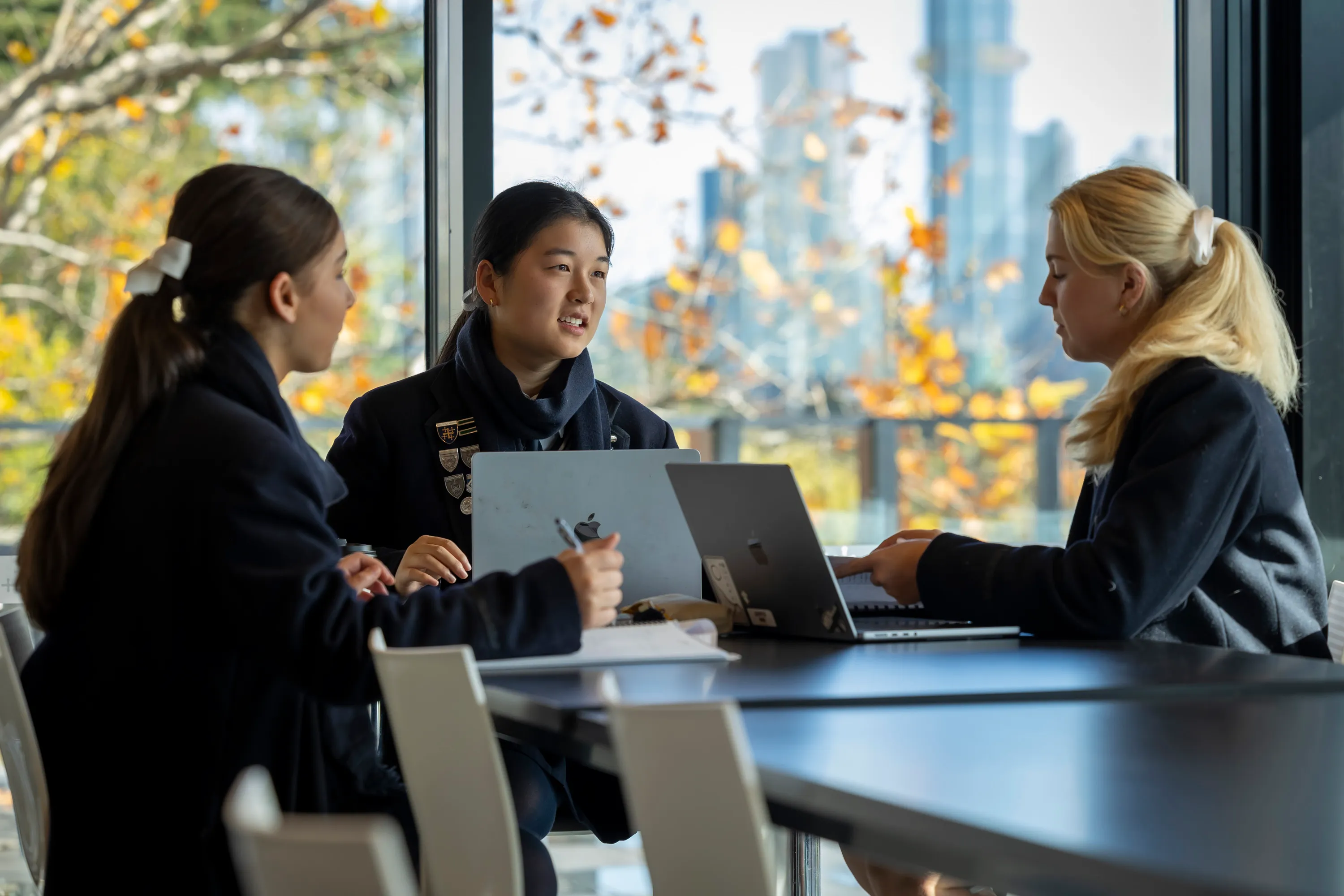

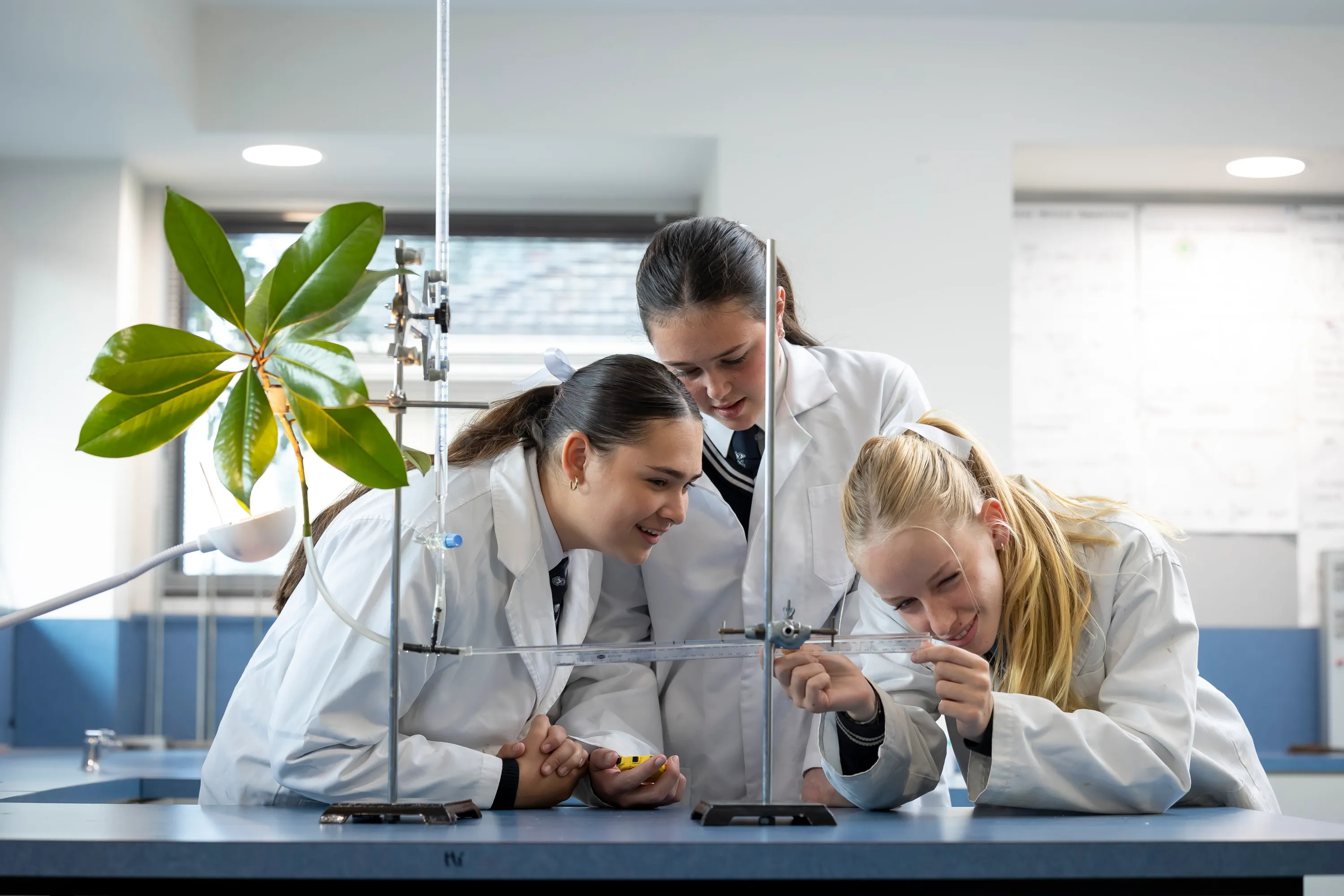
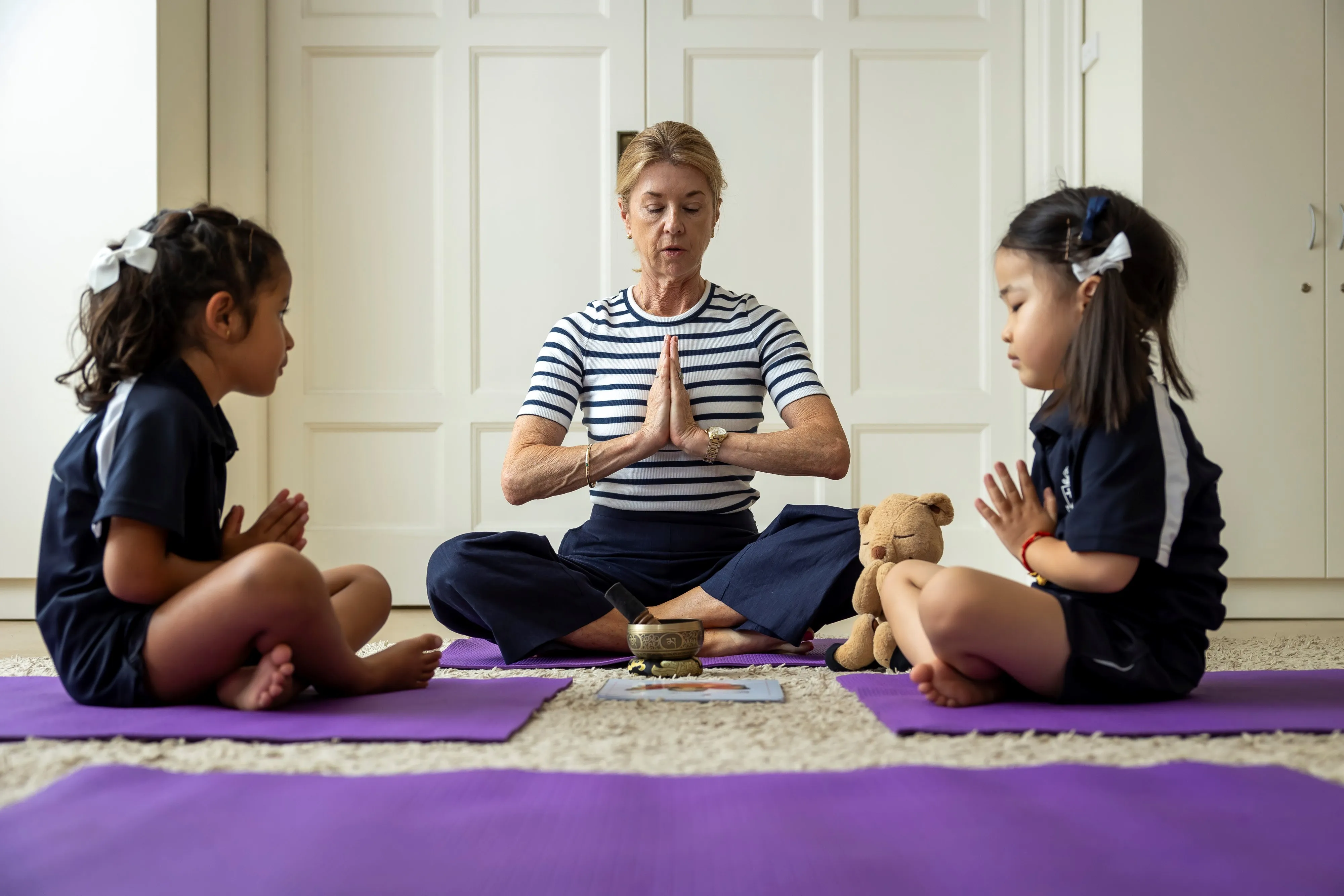
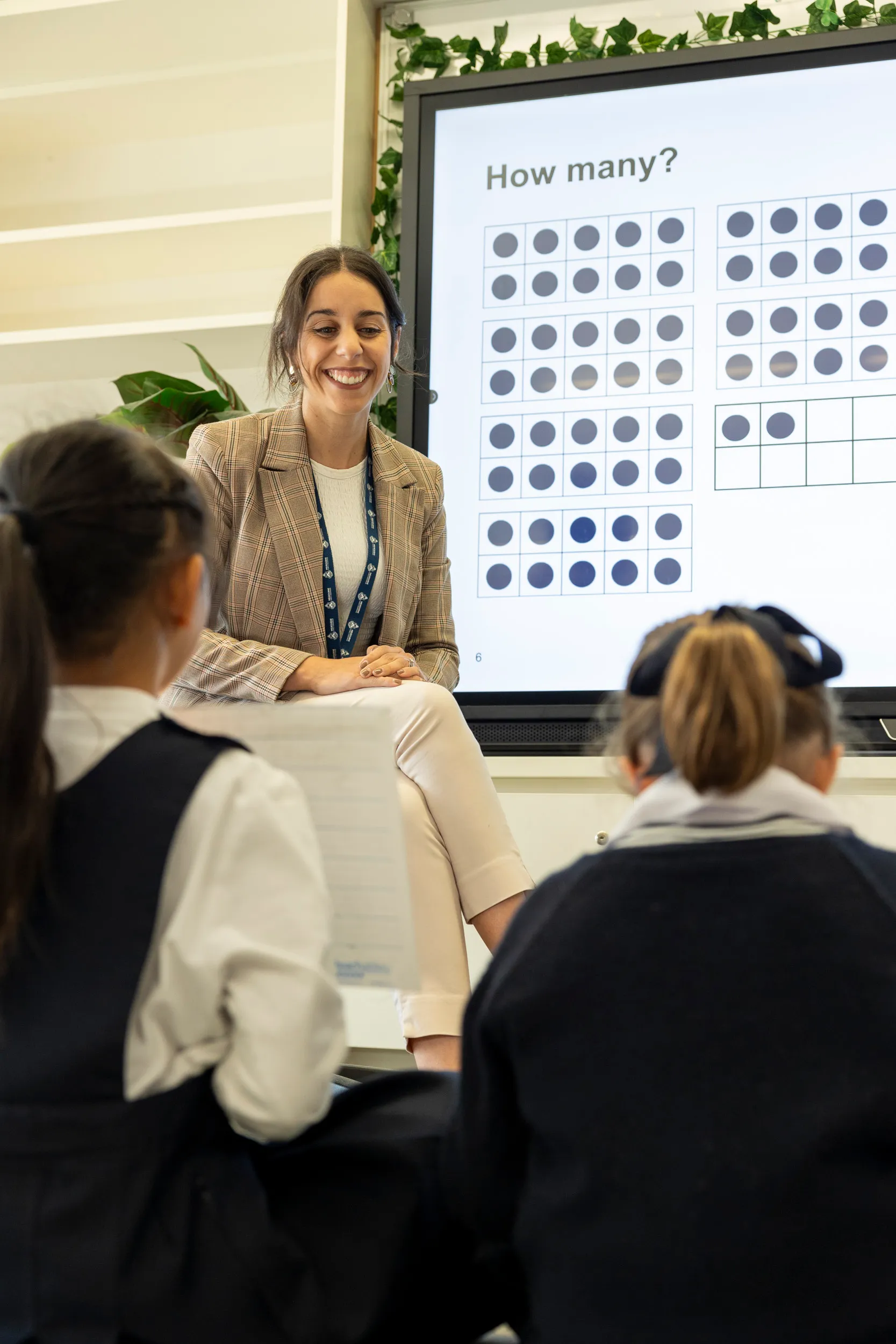
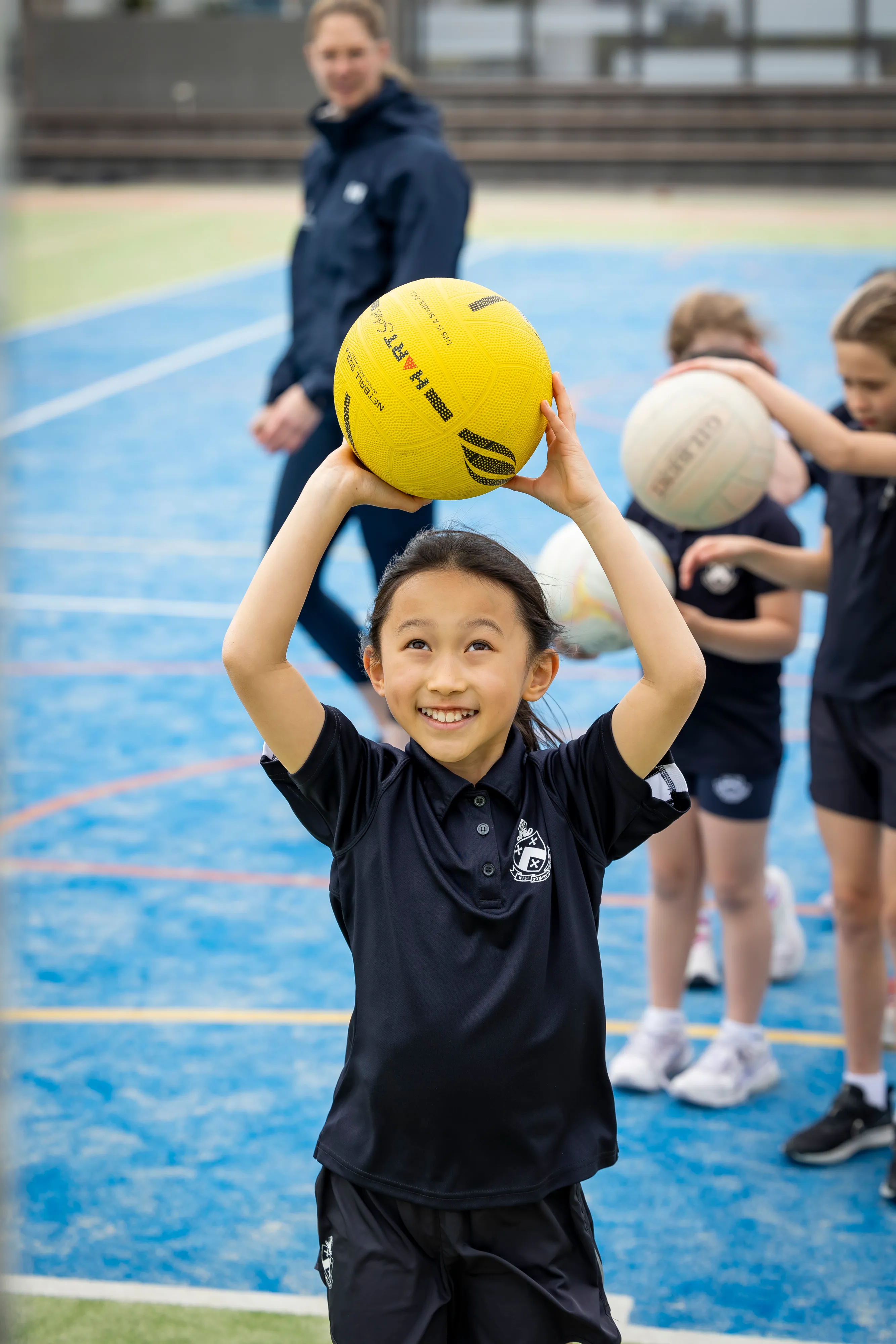
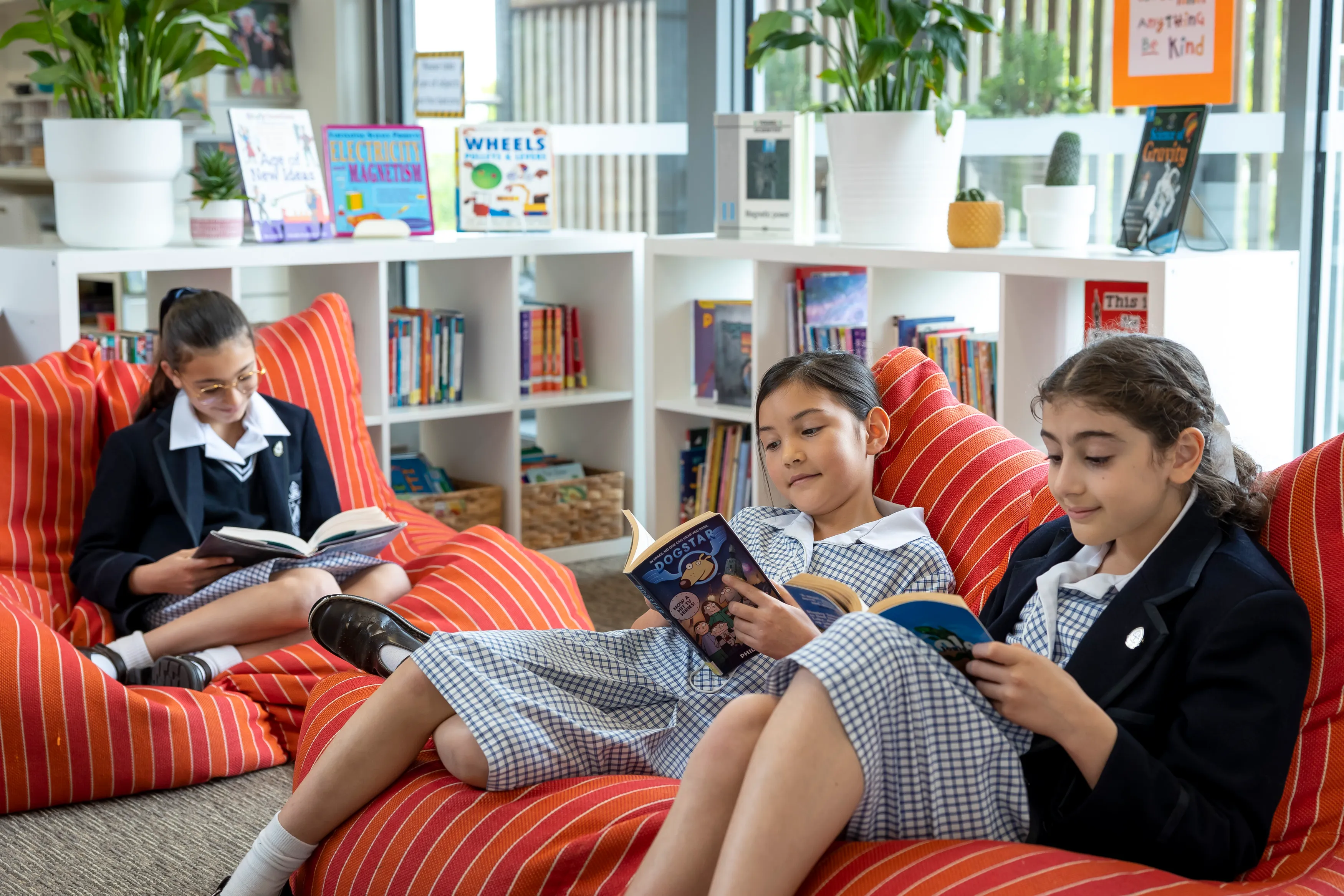
.jpg)
